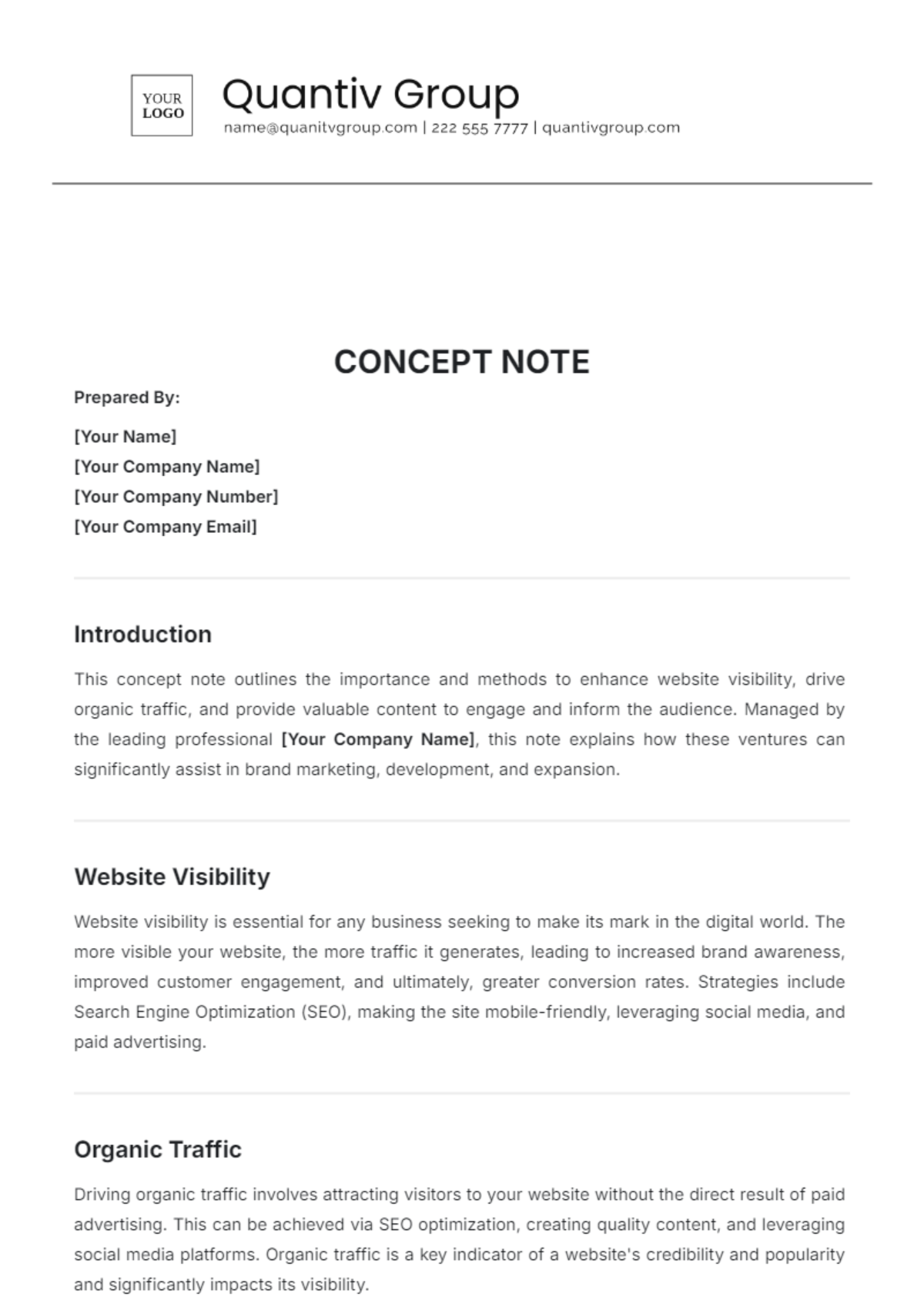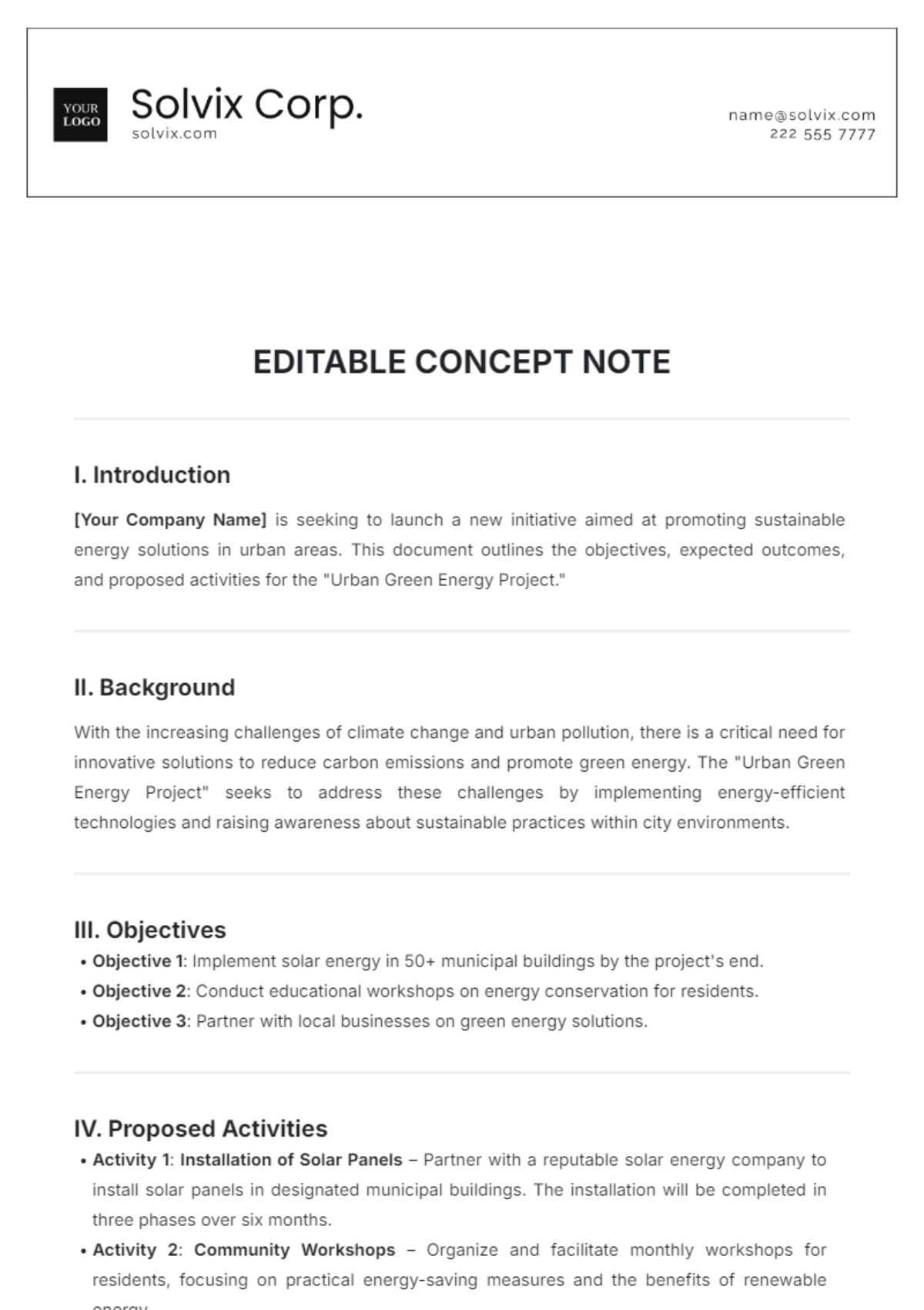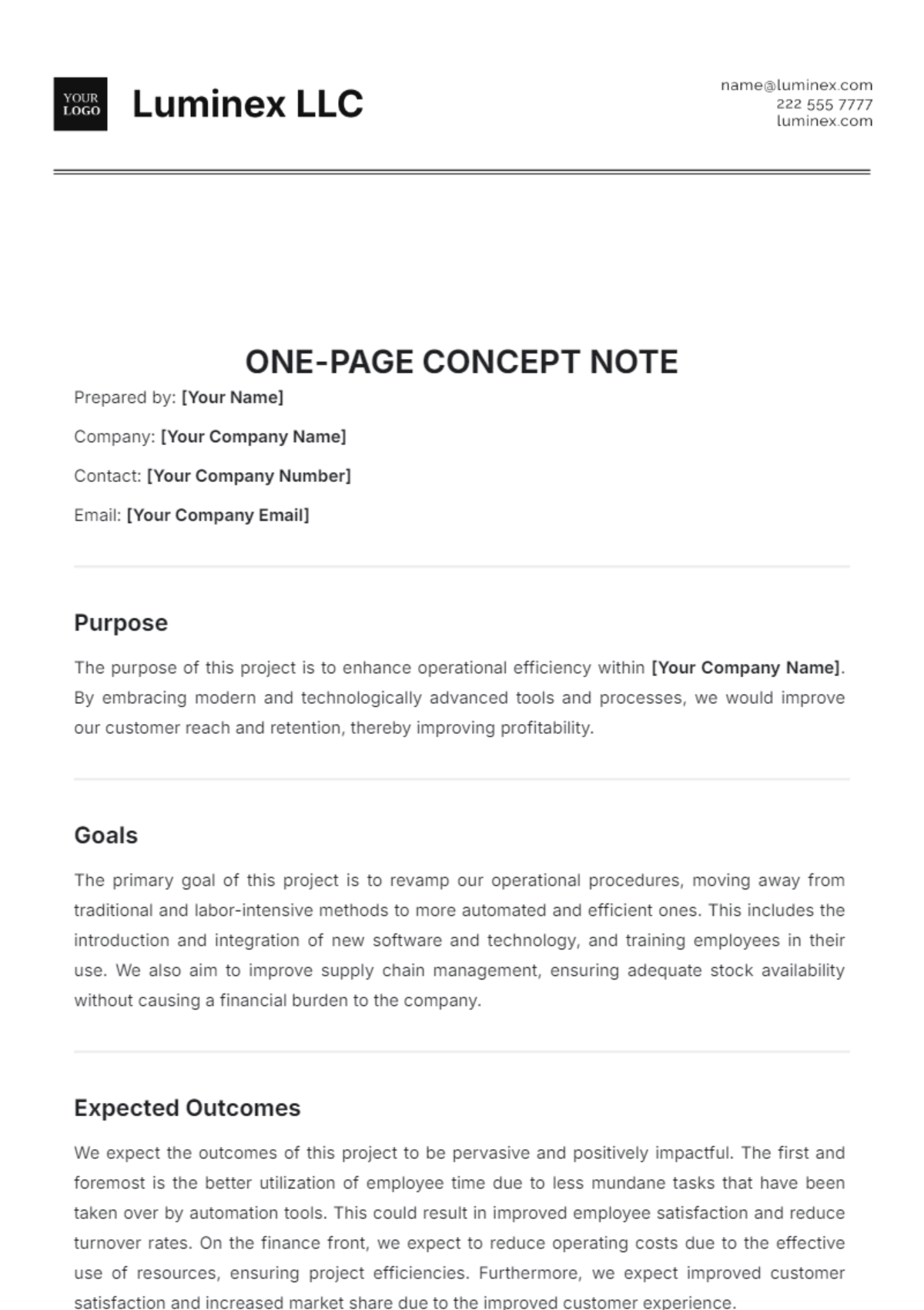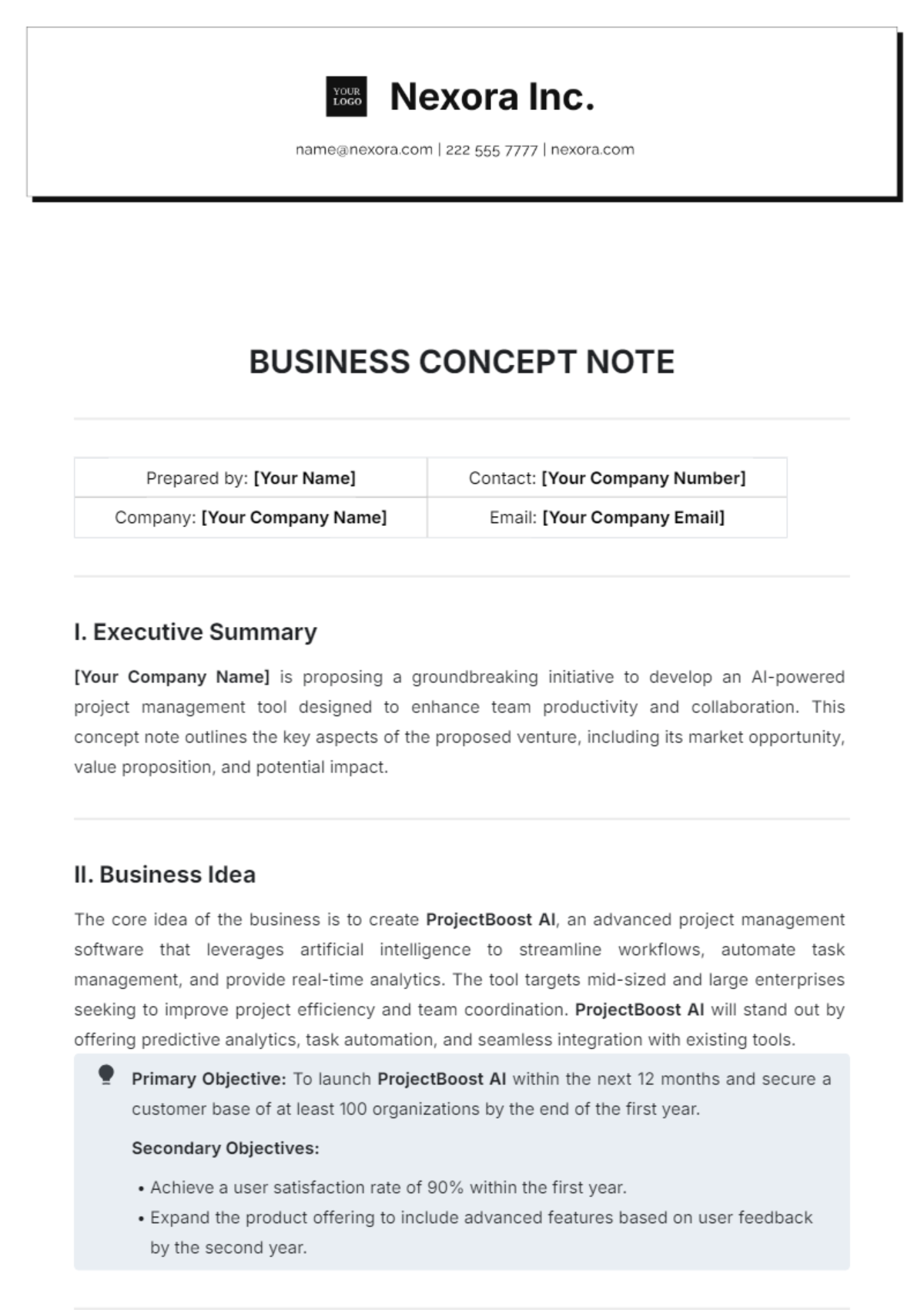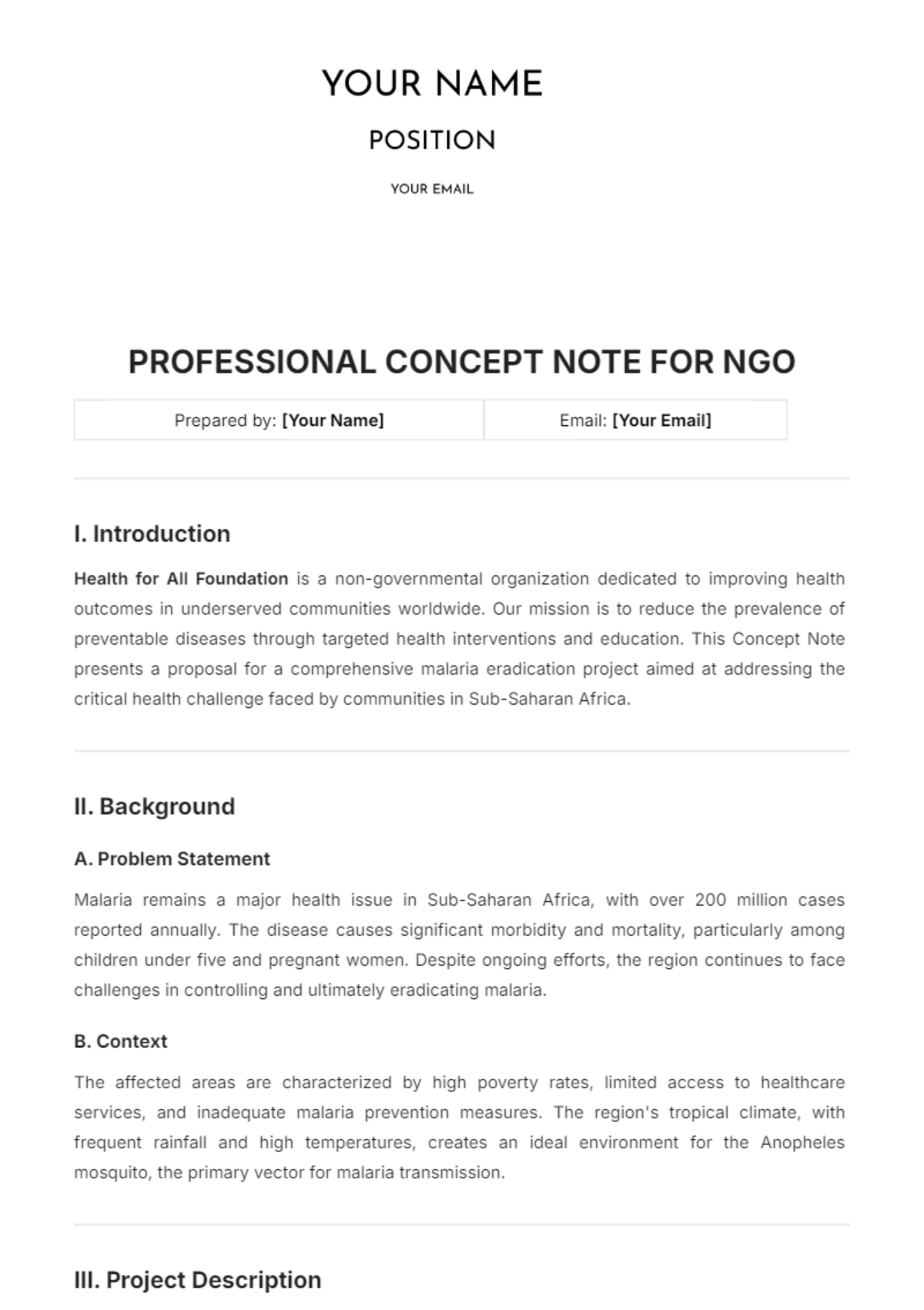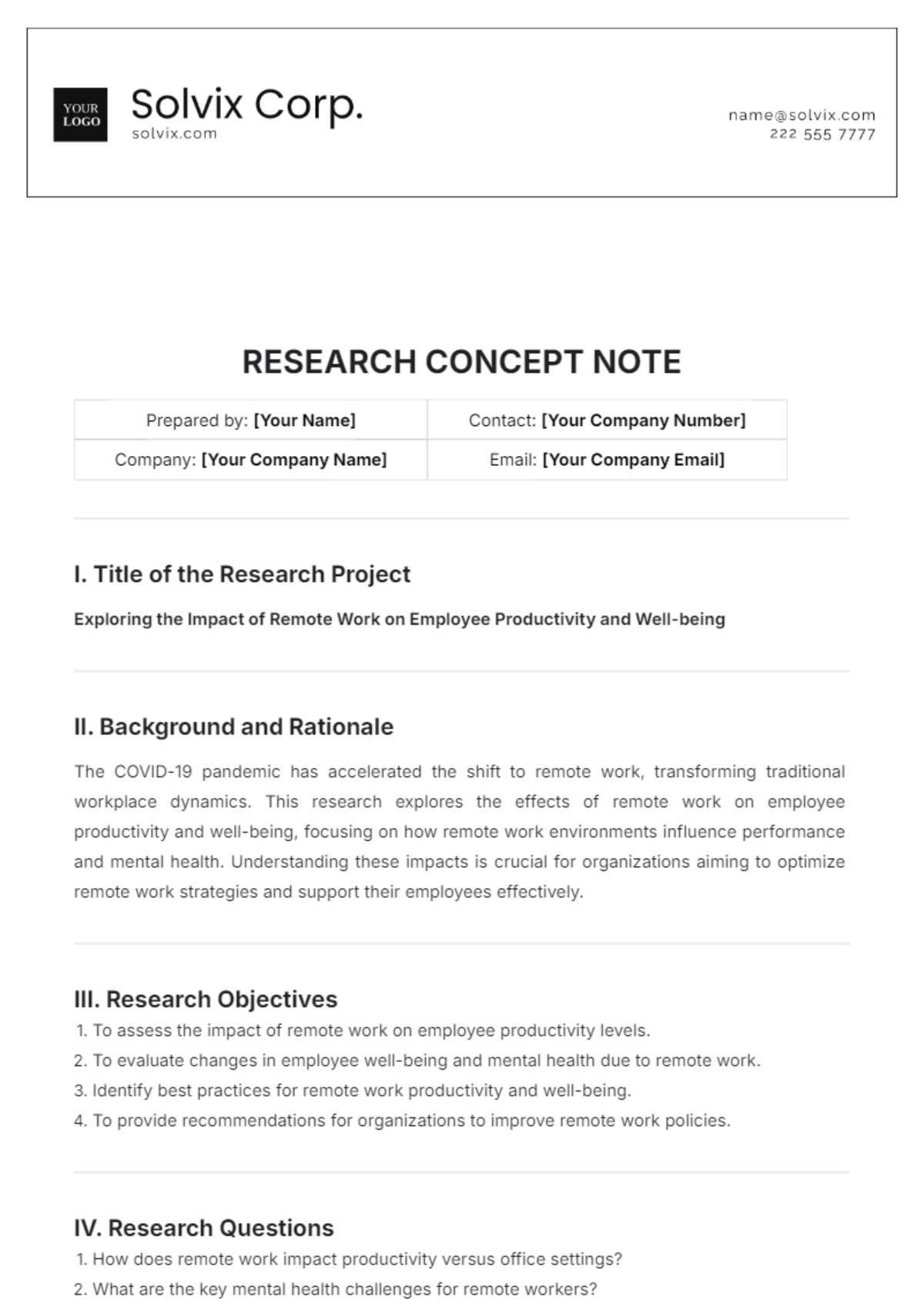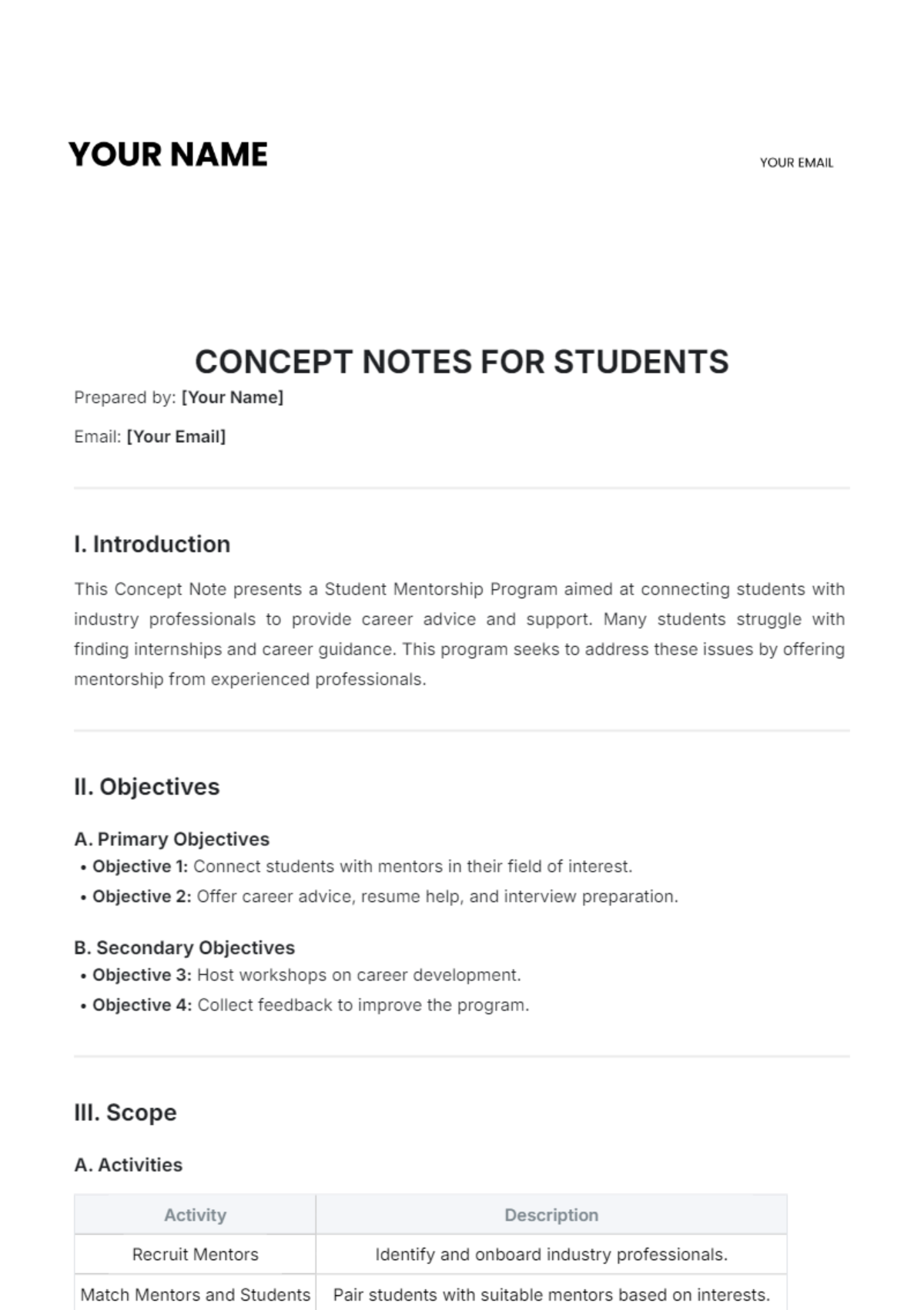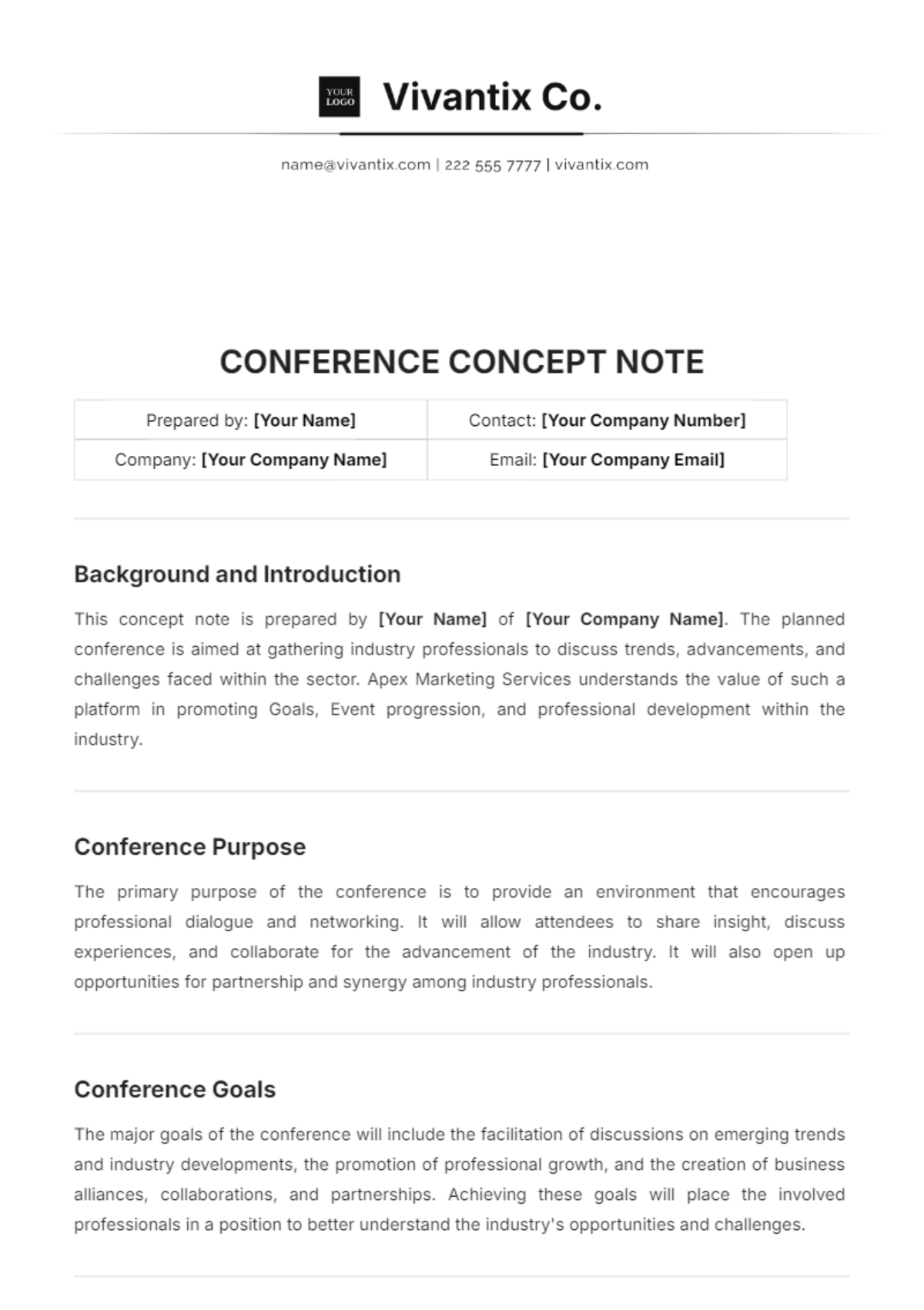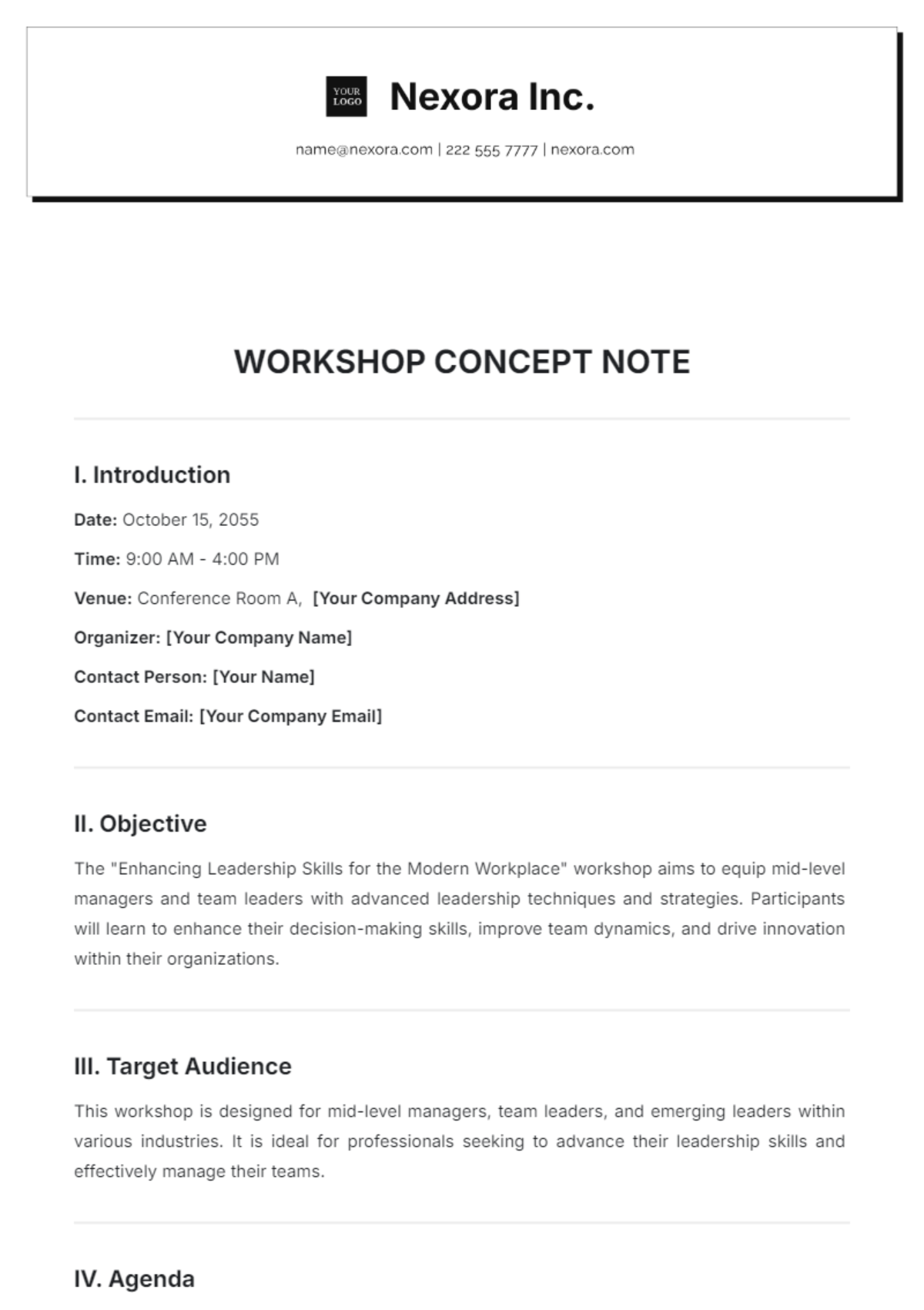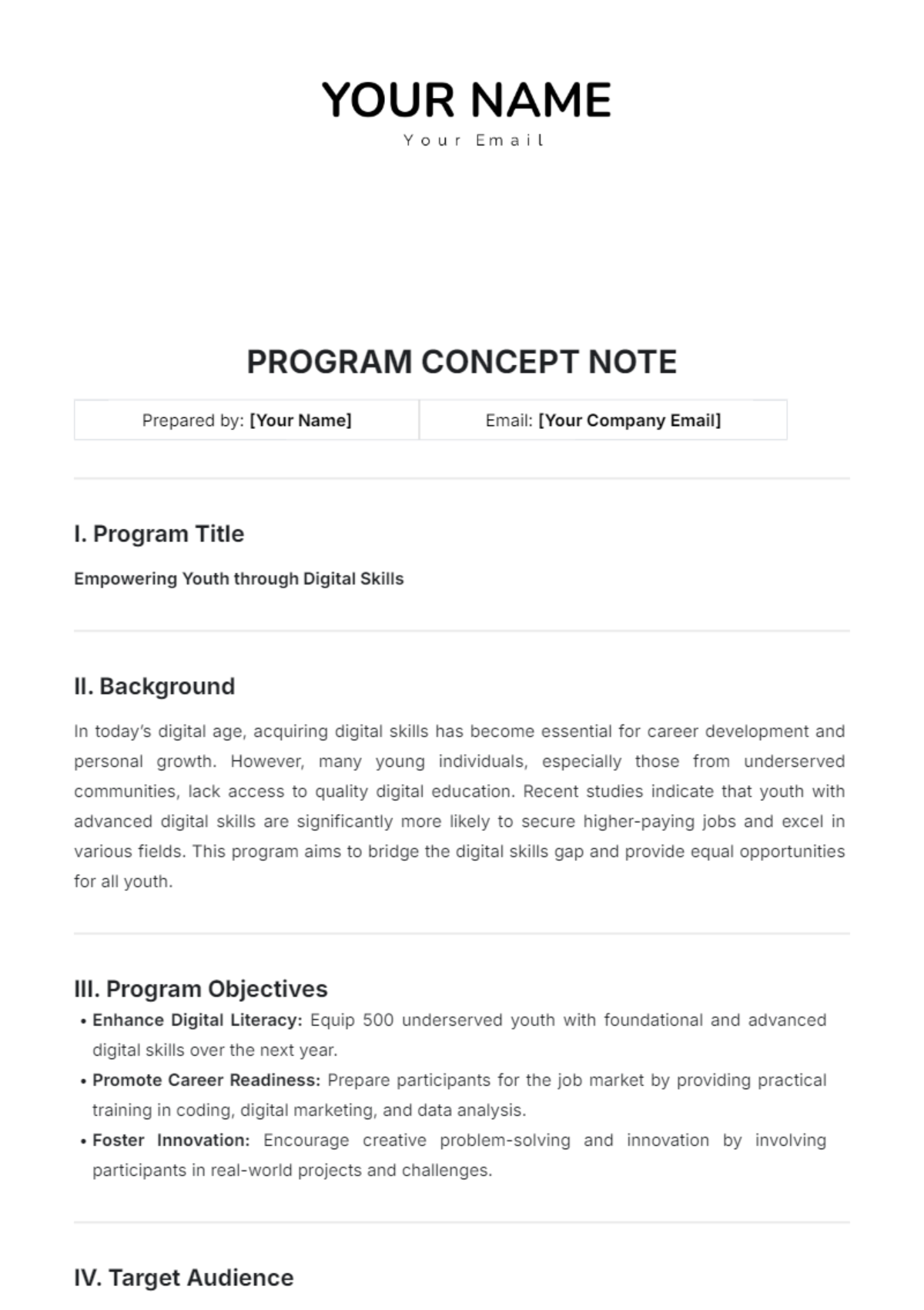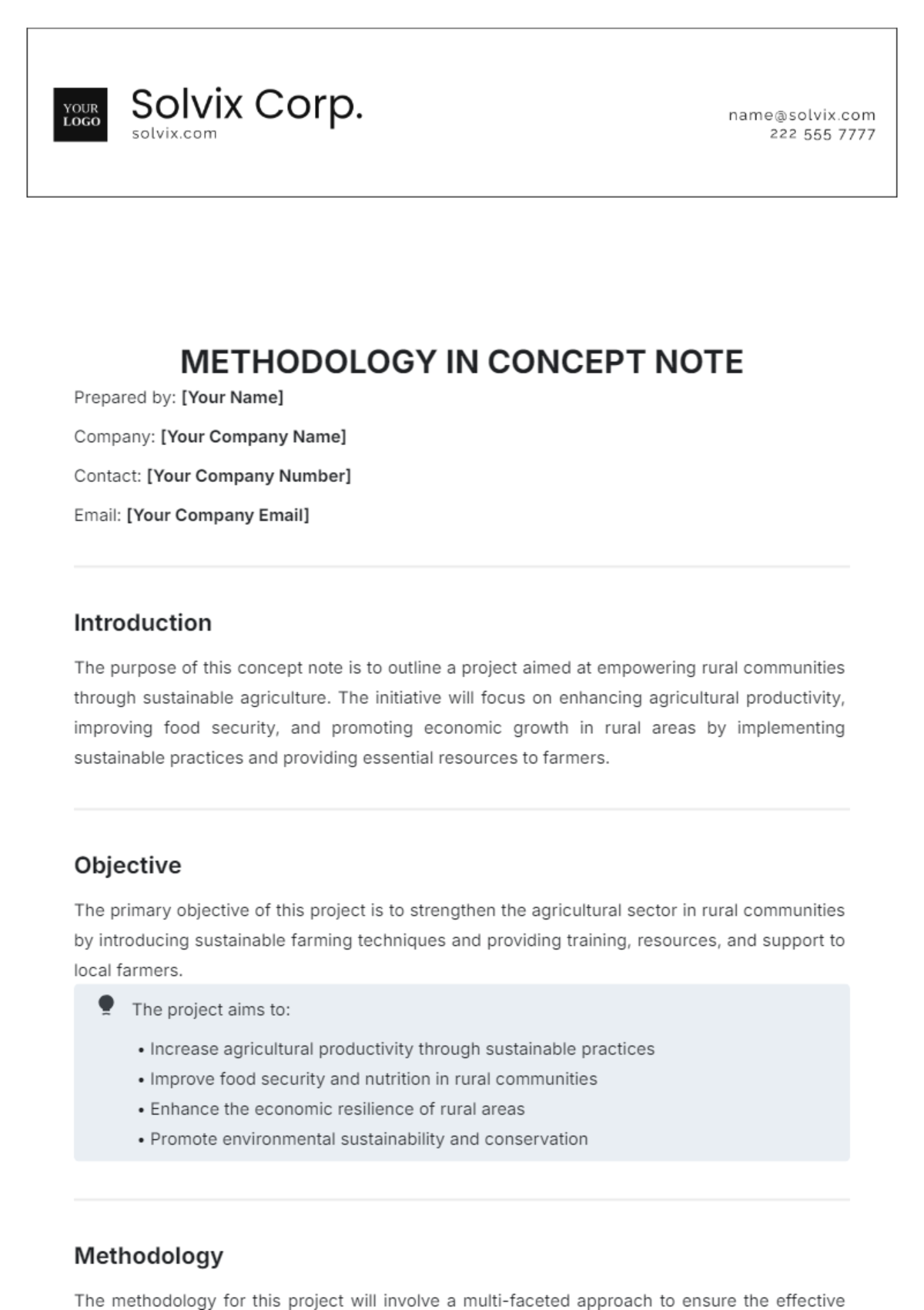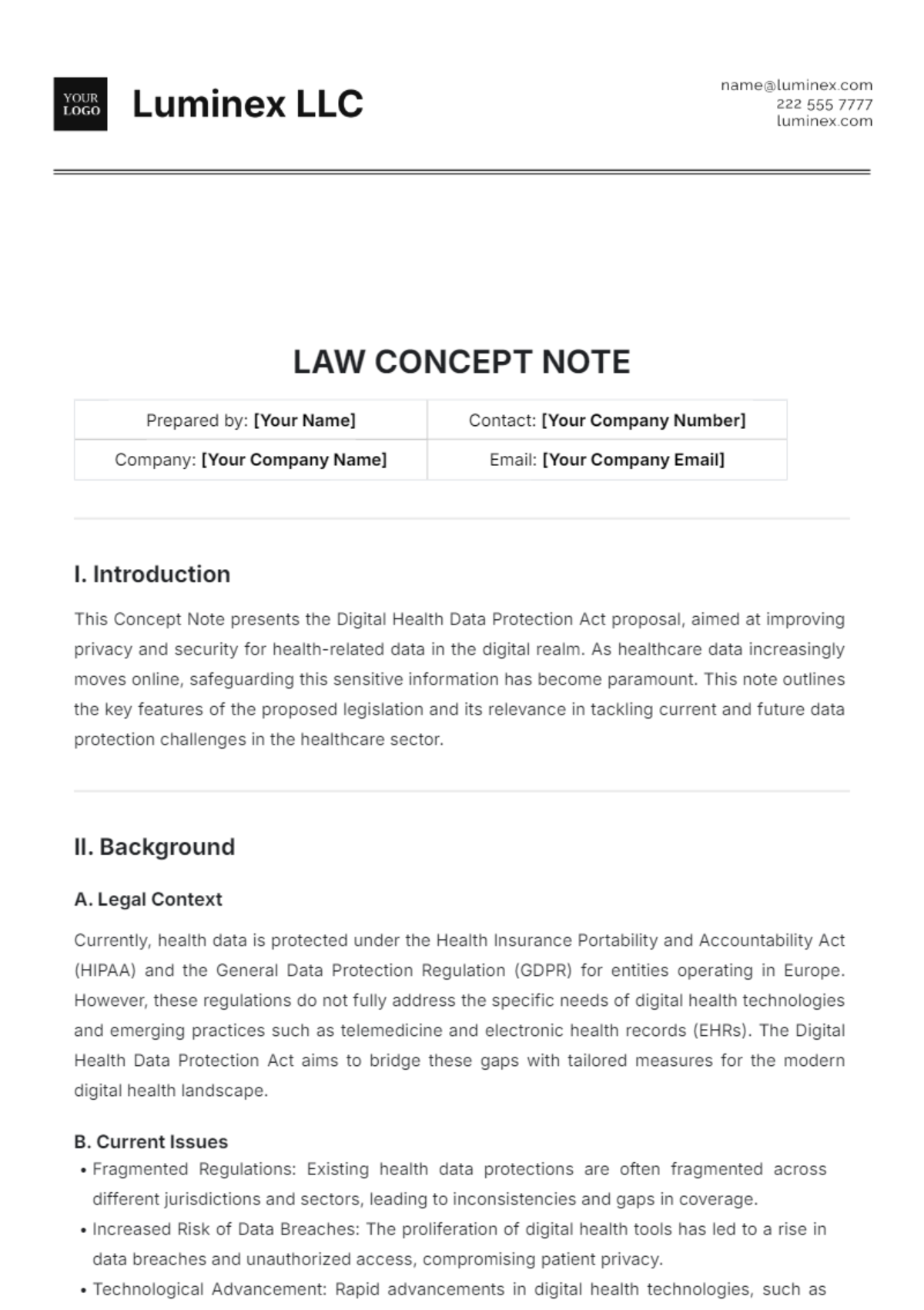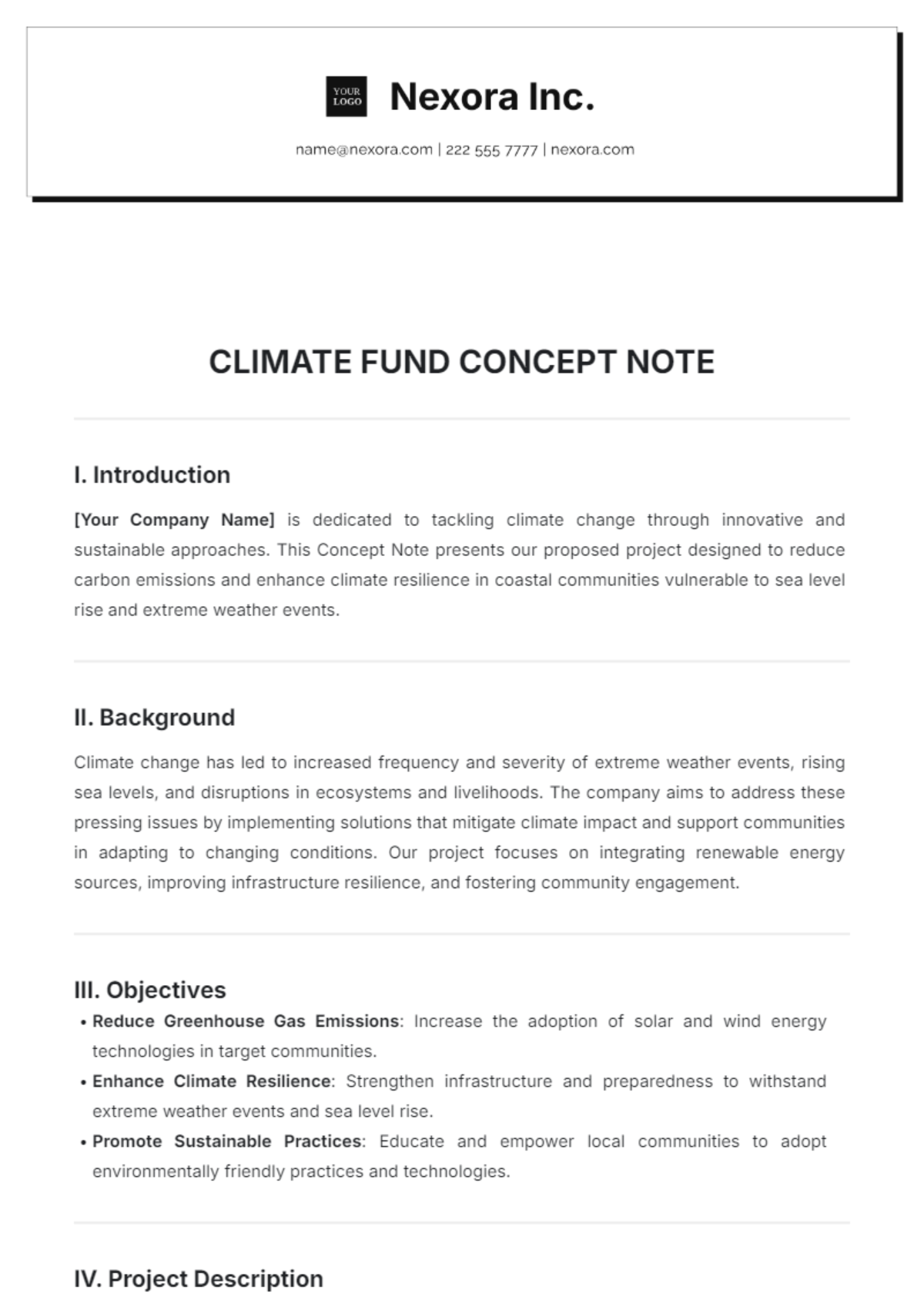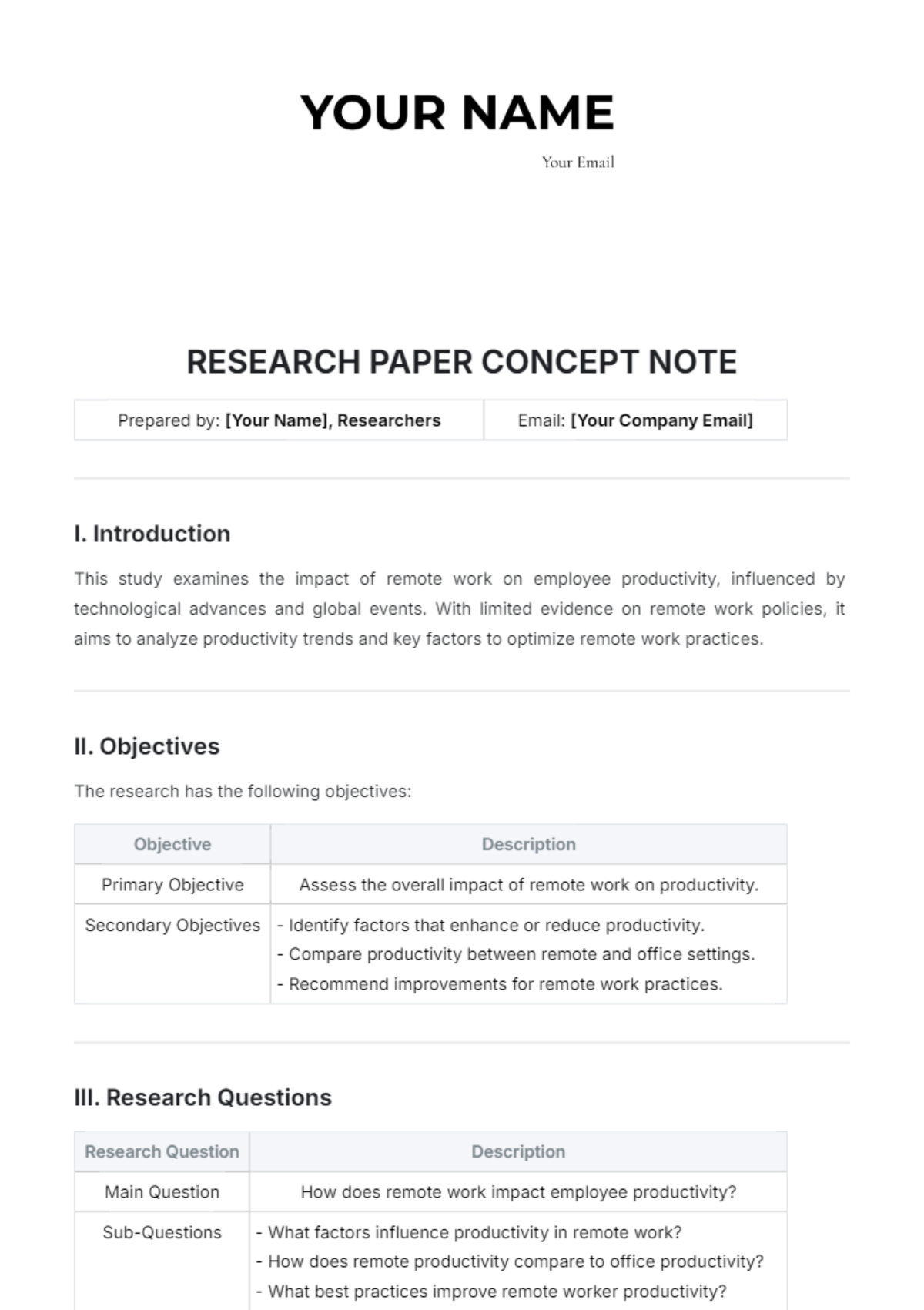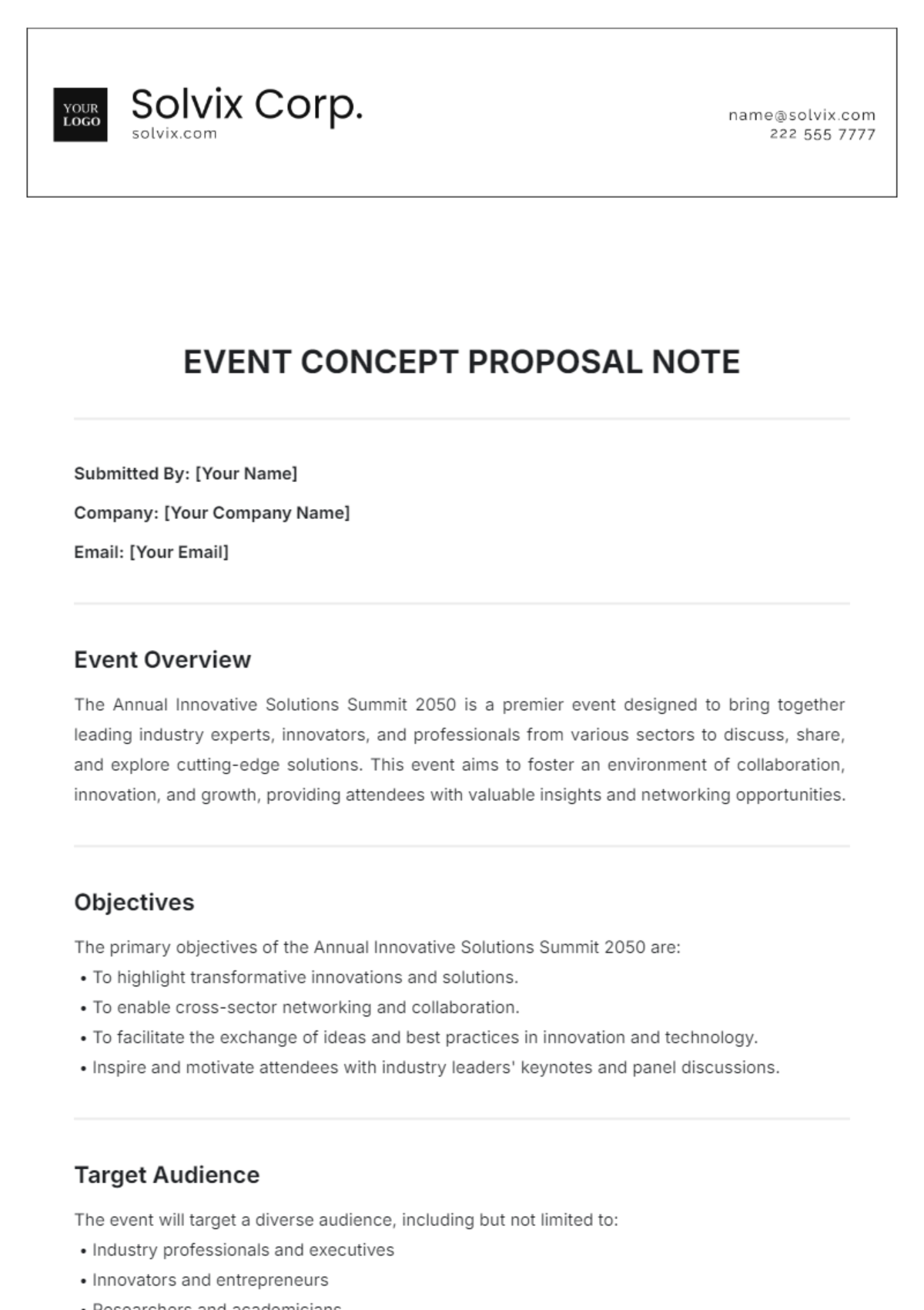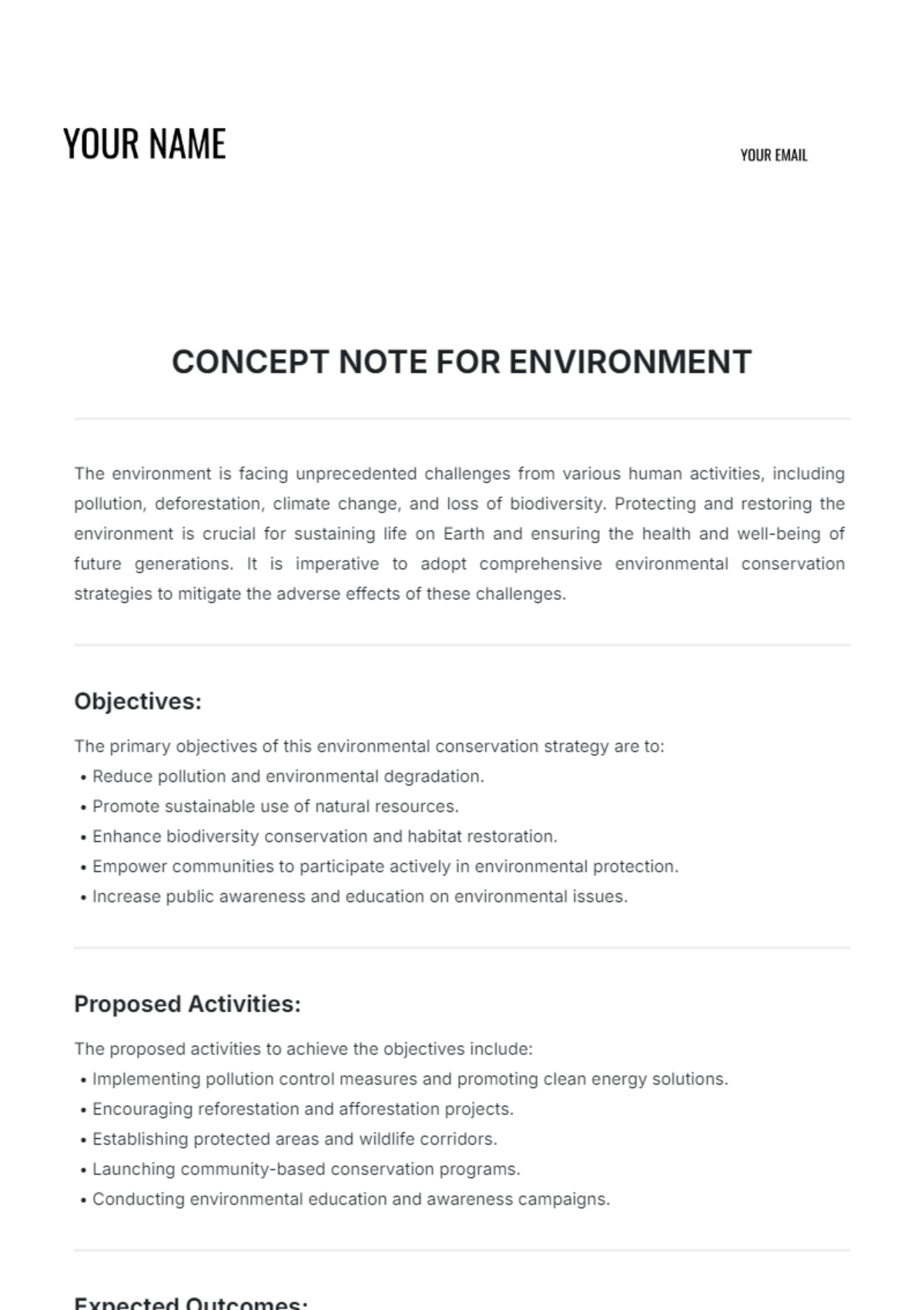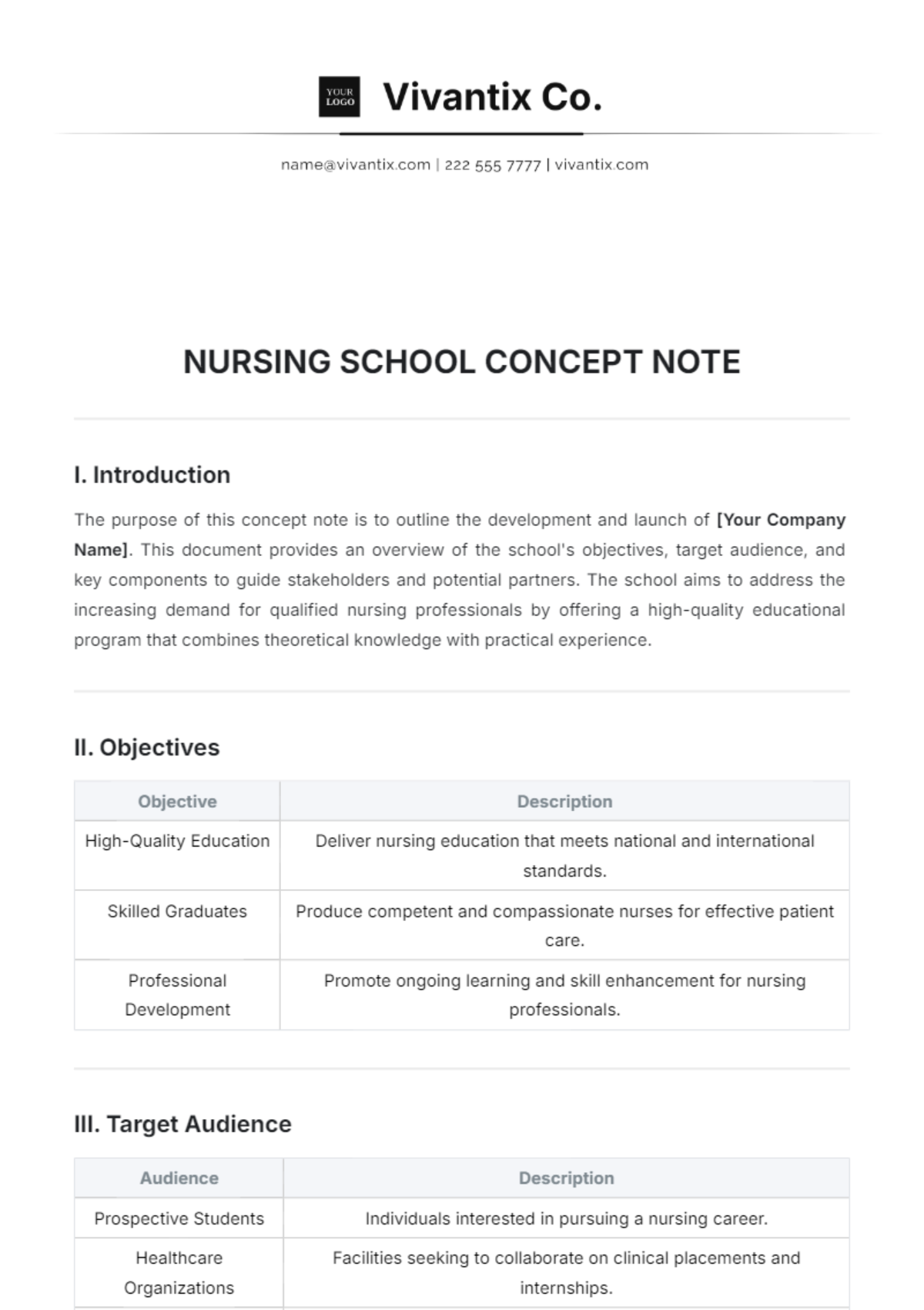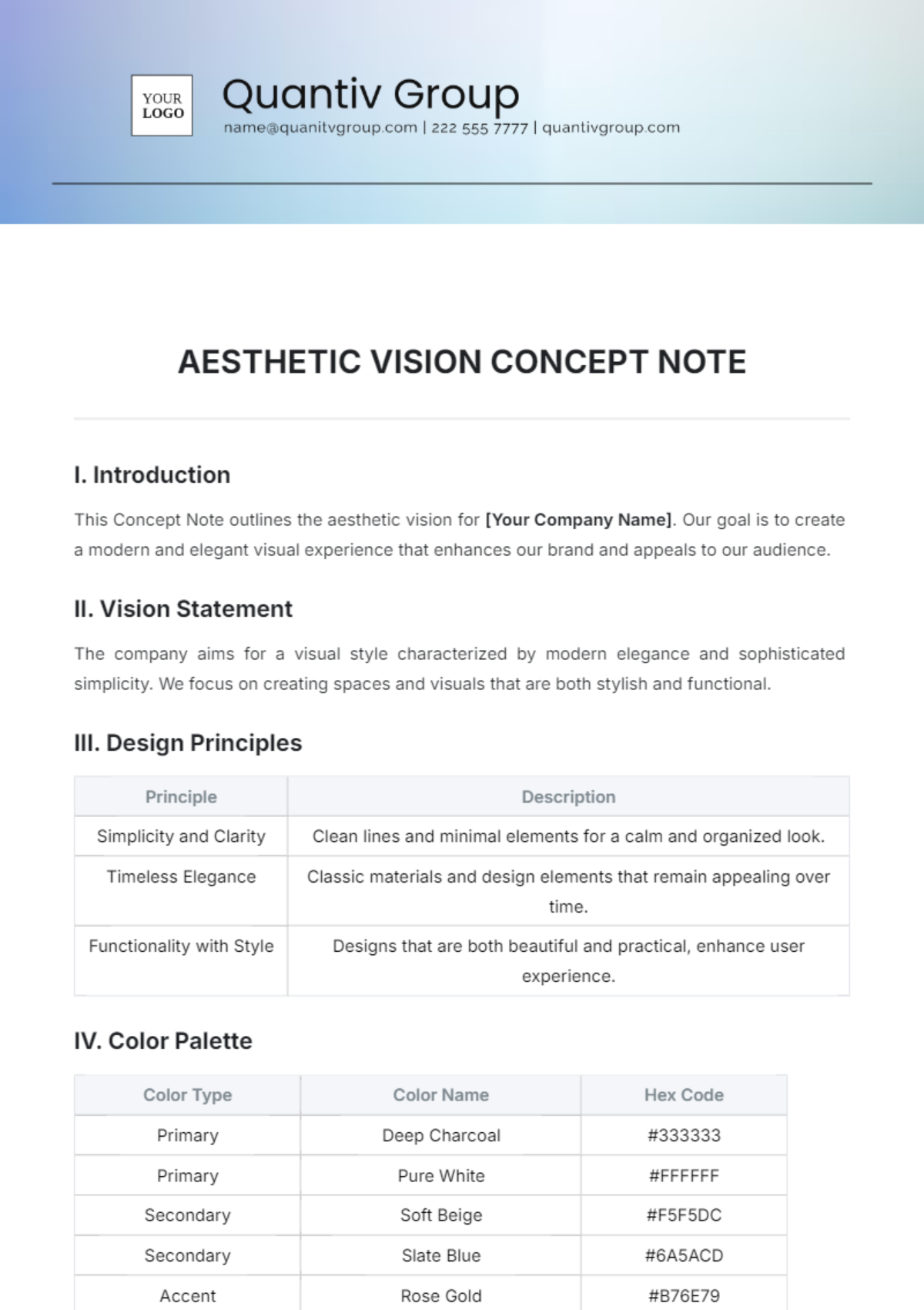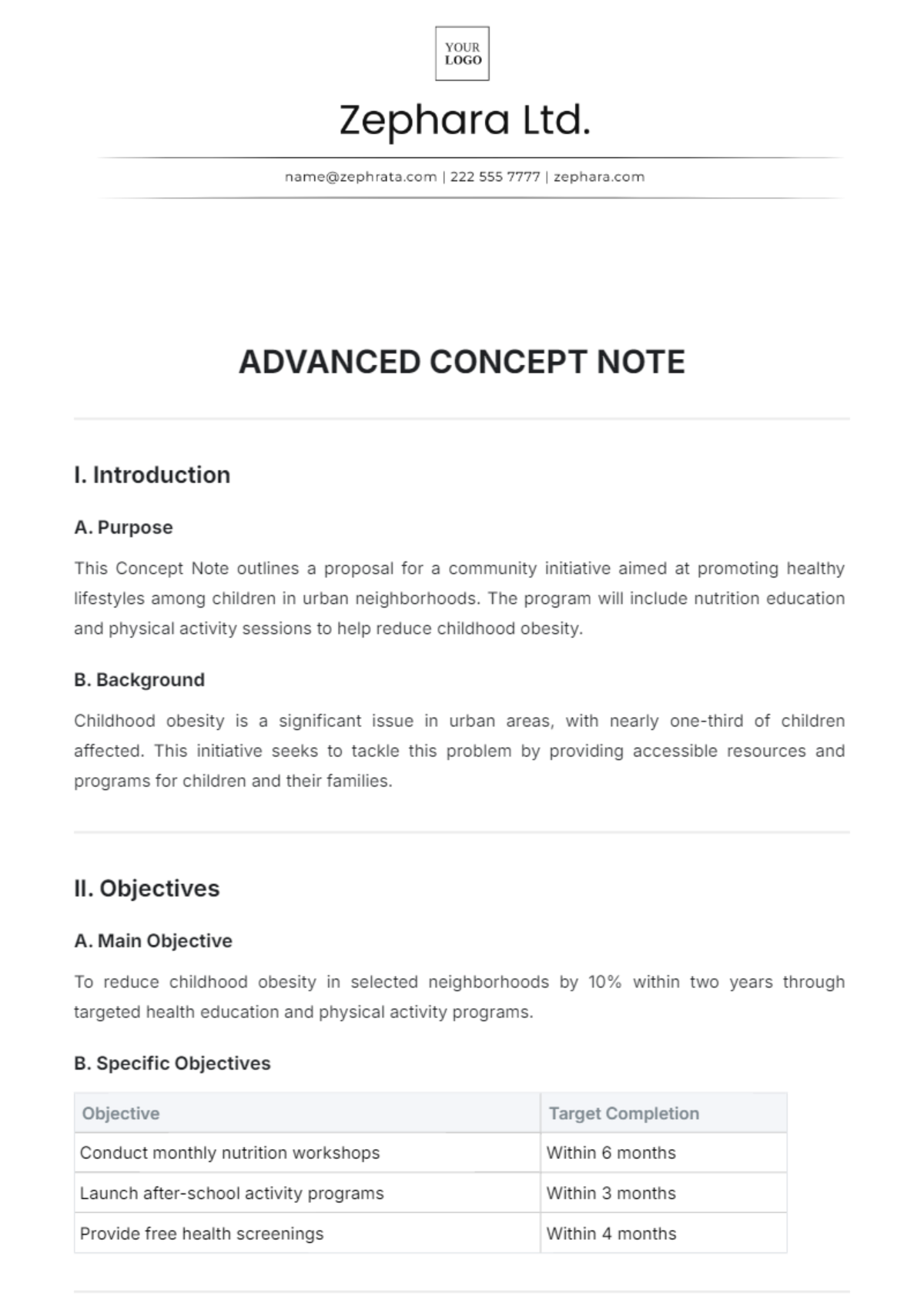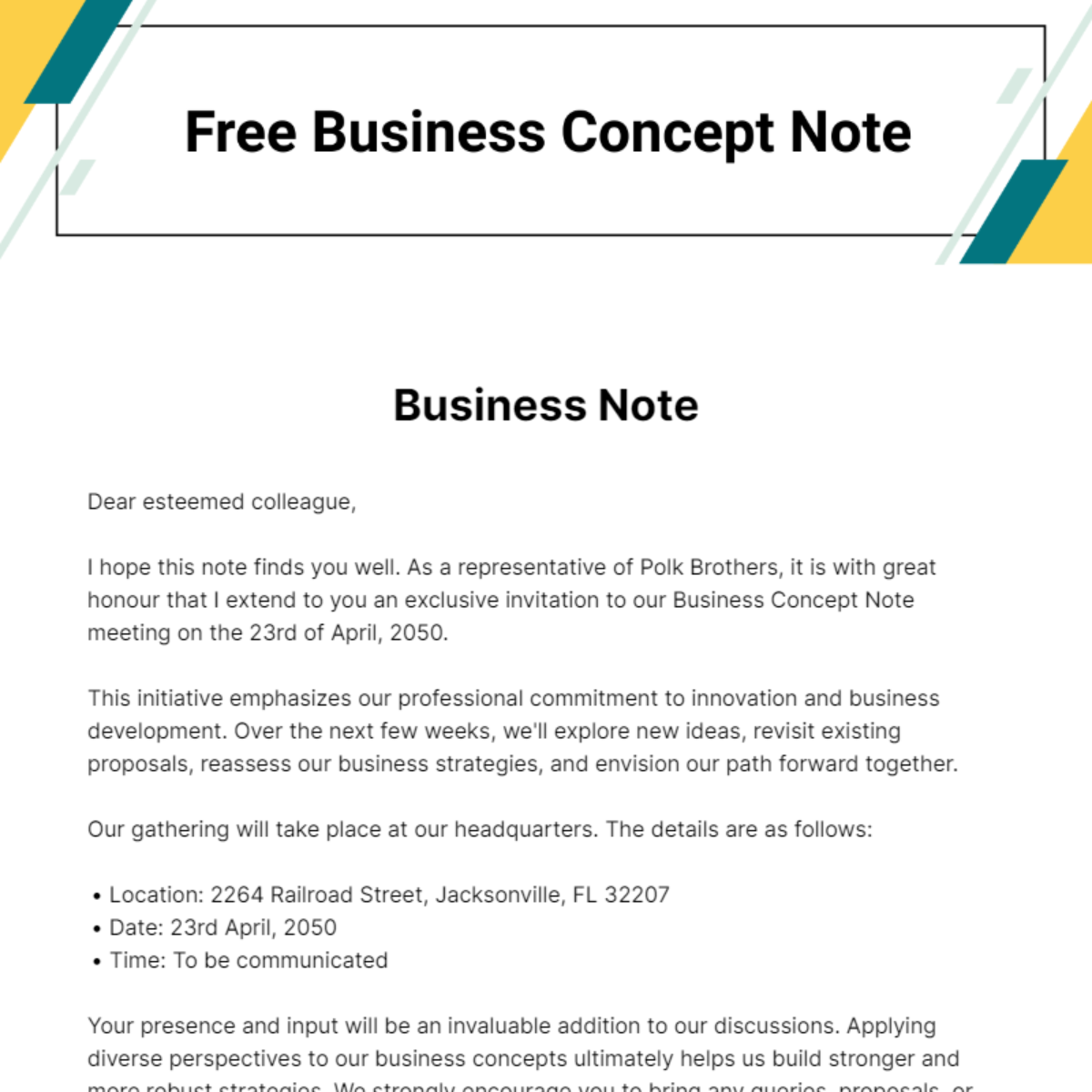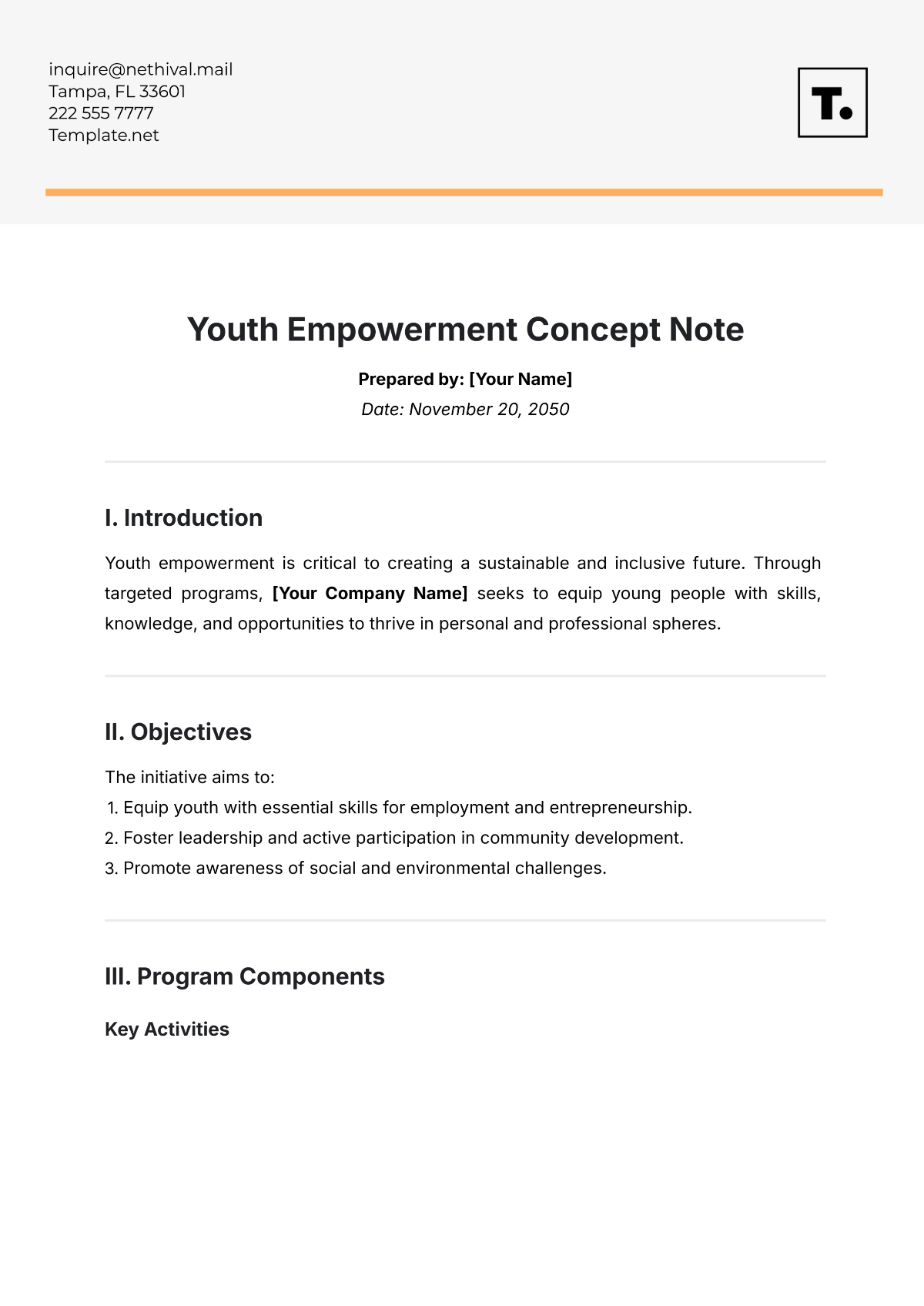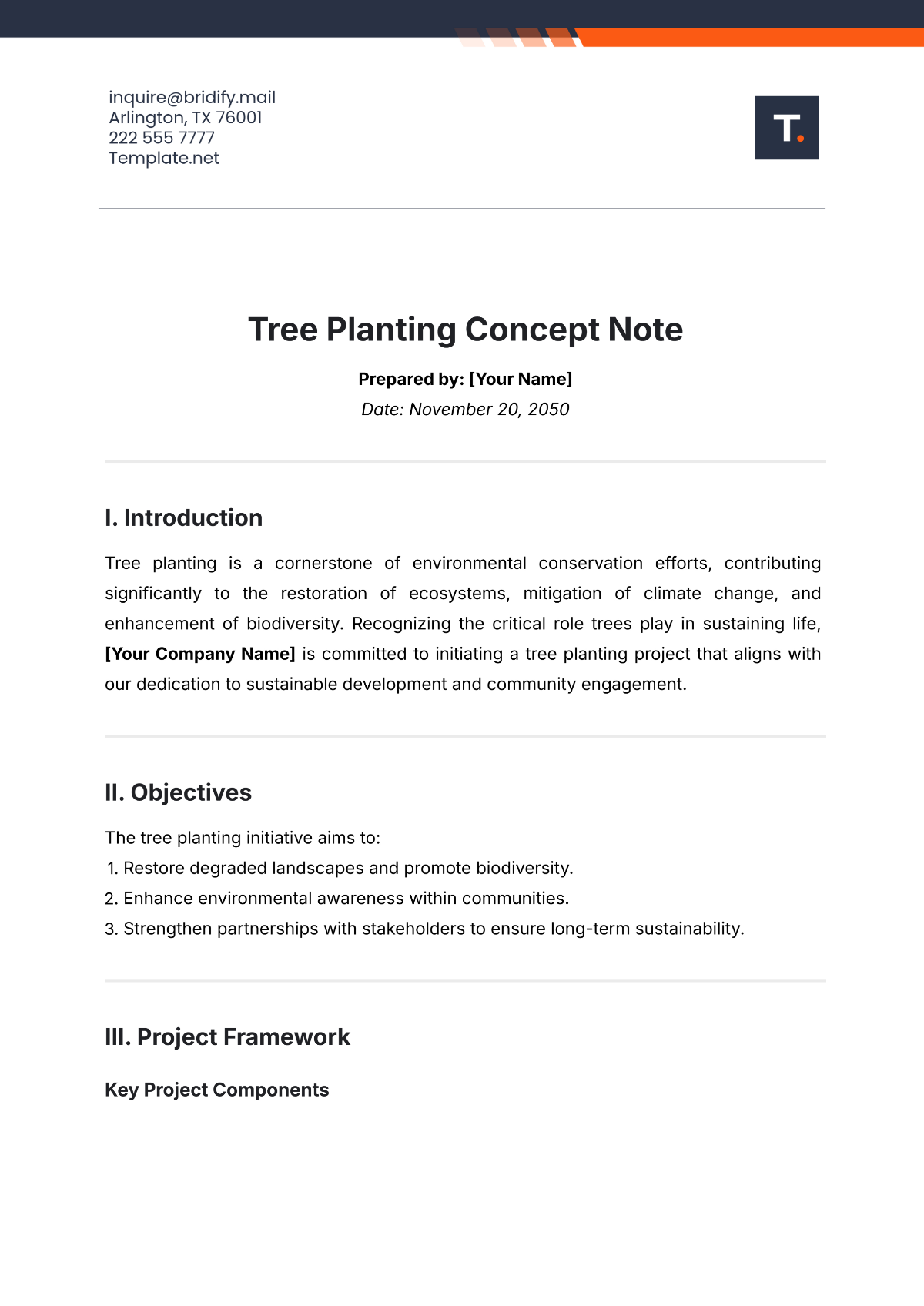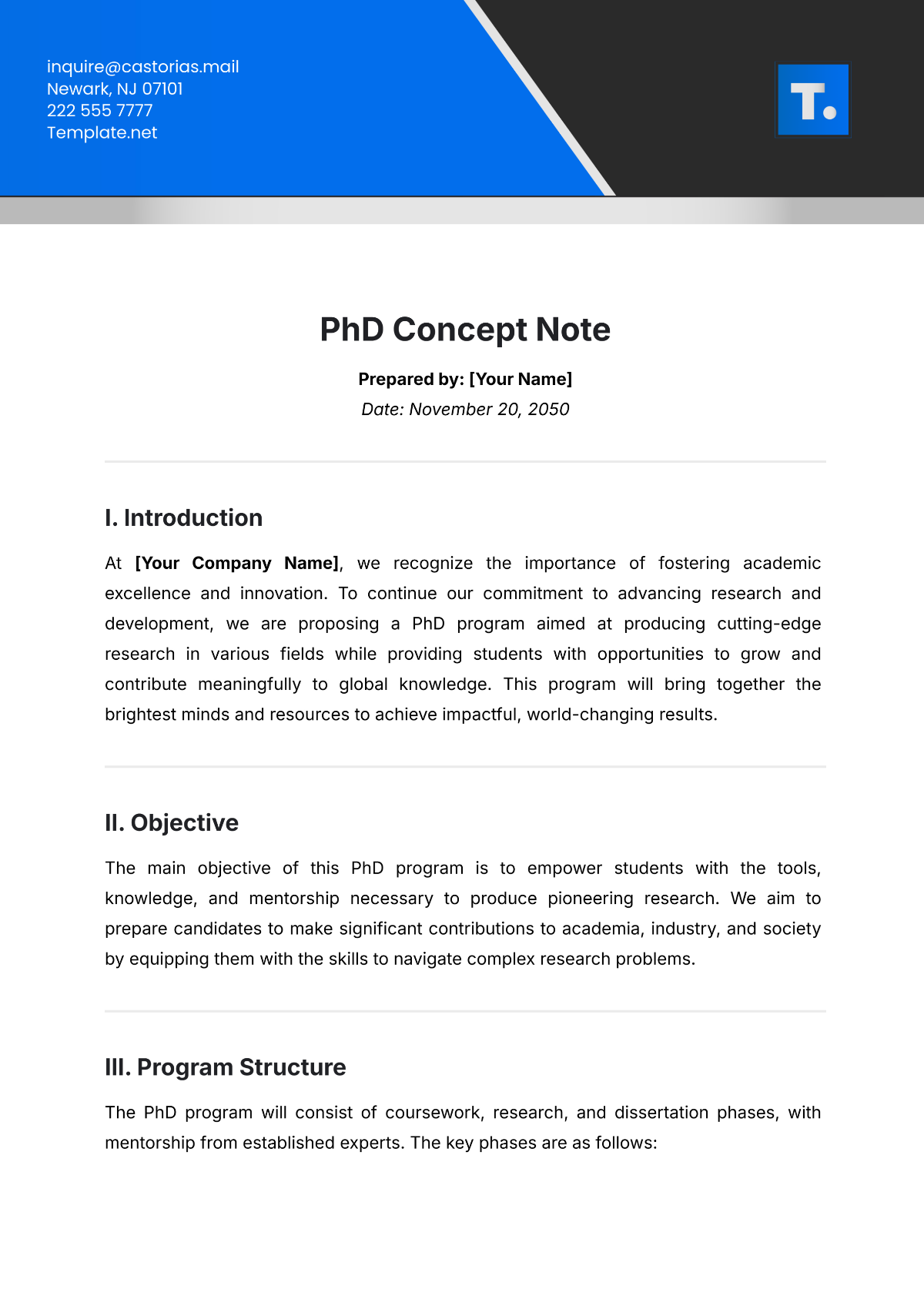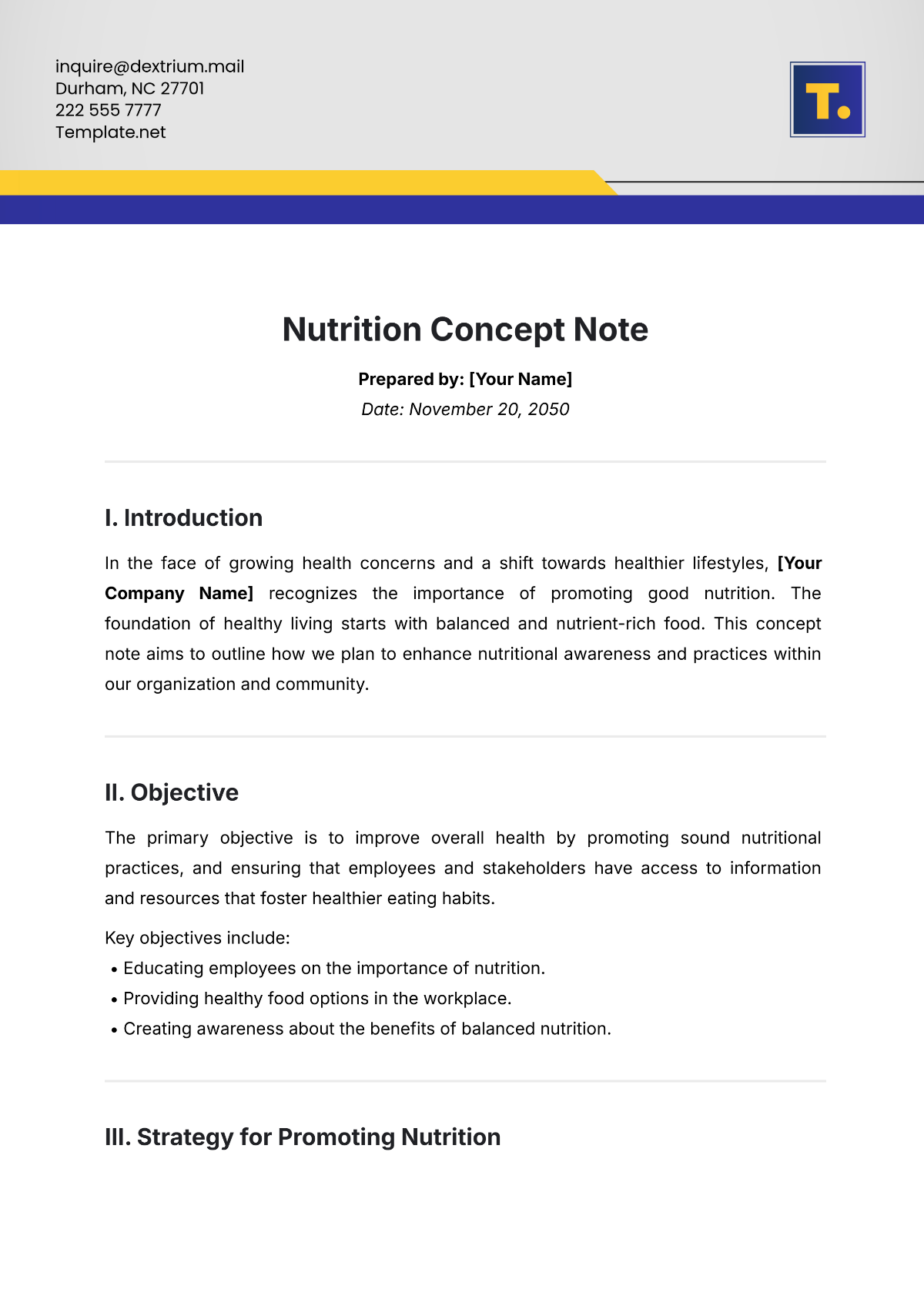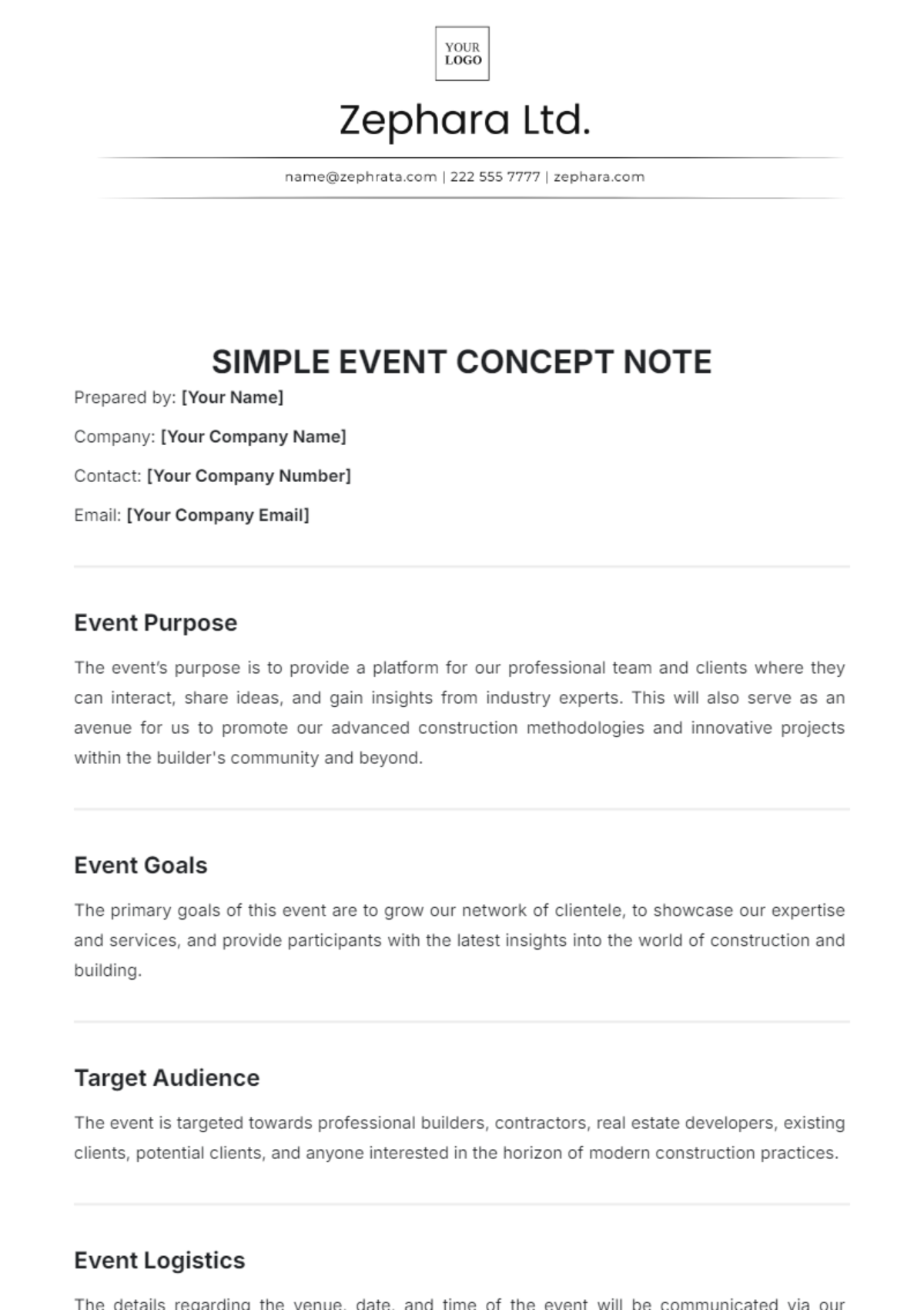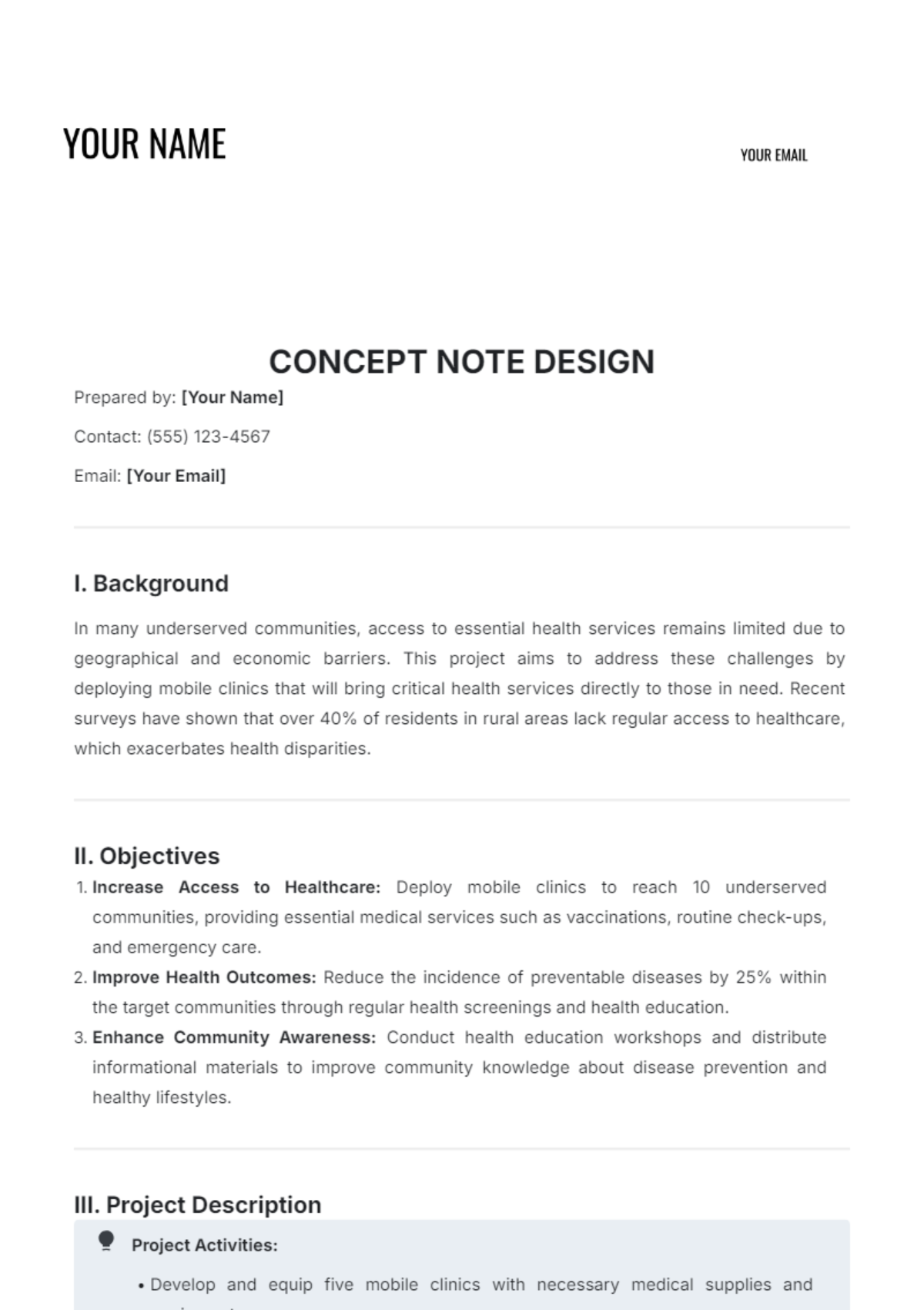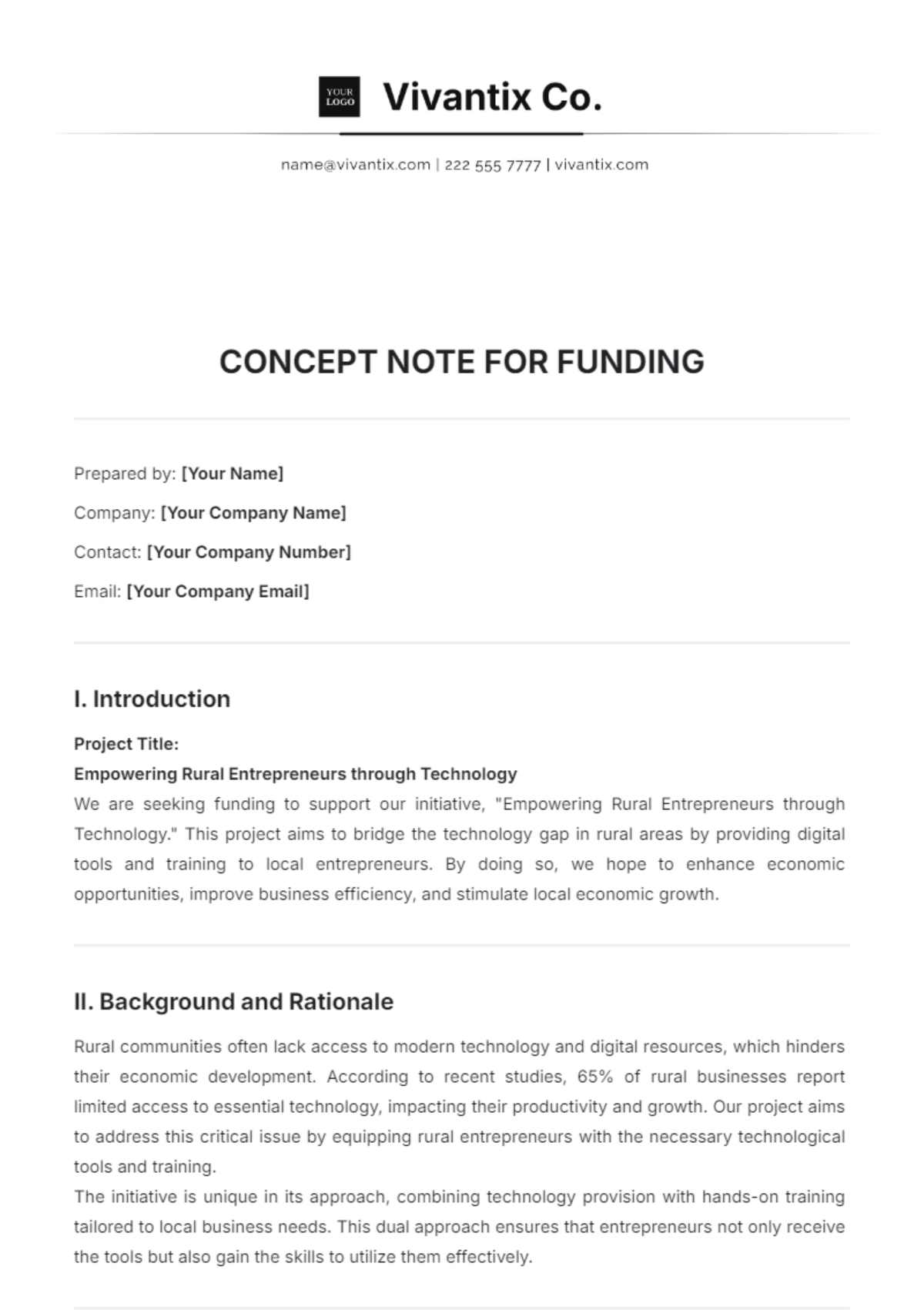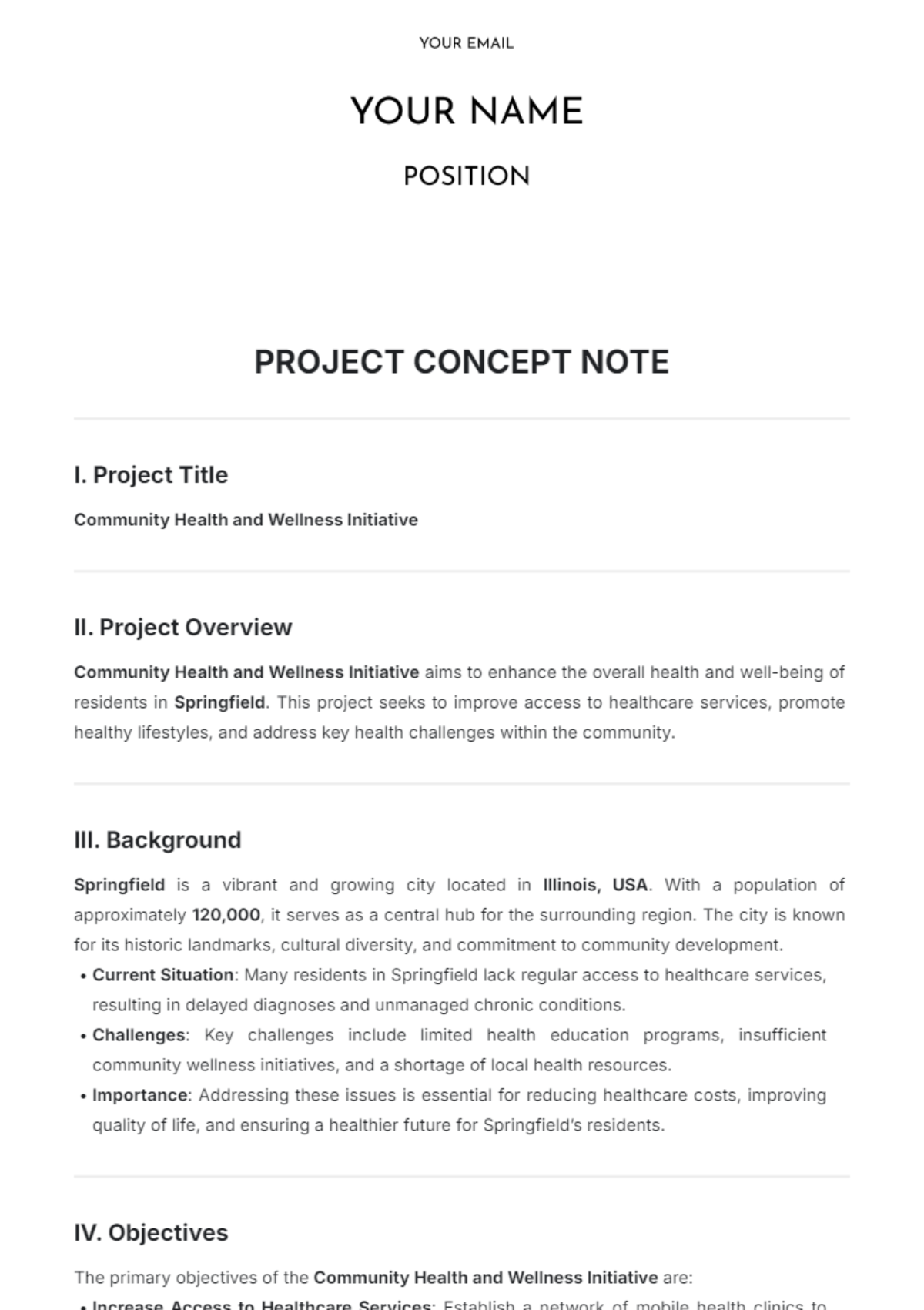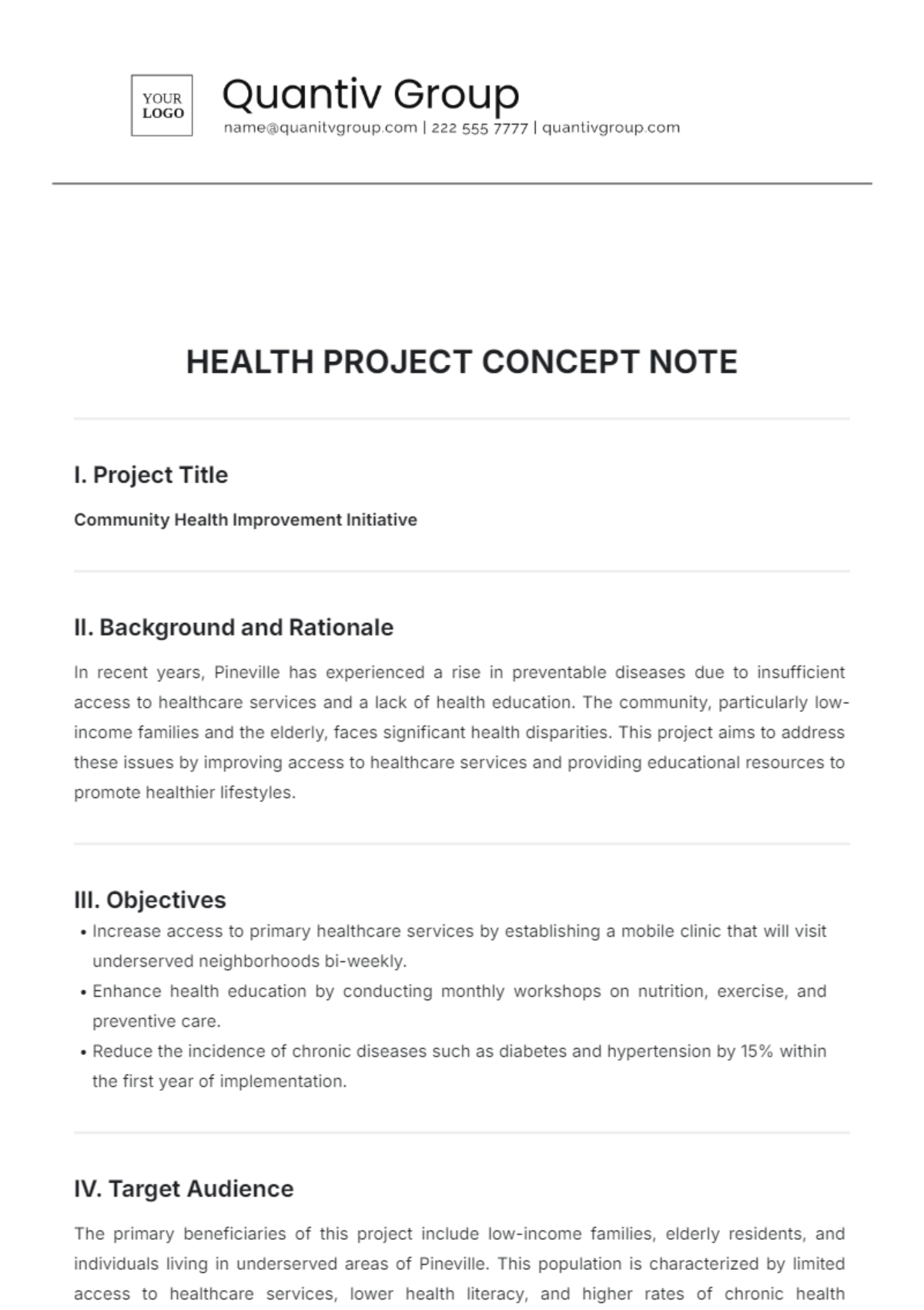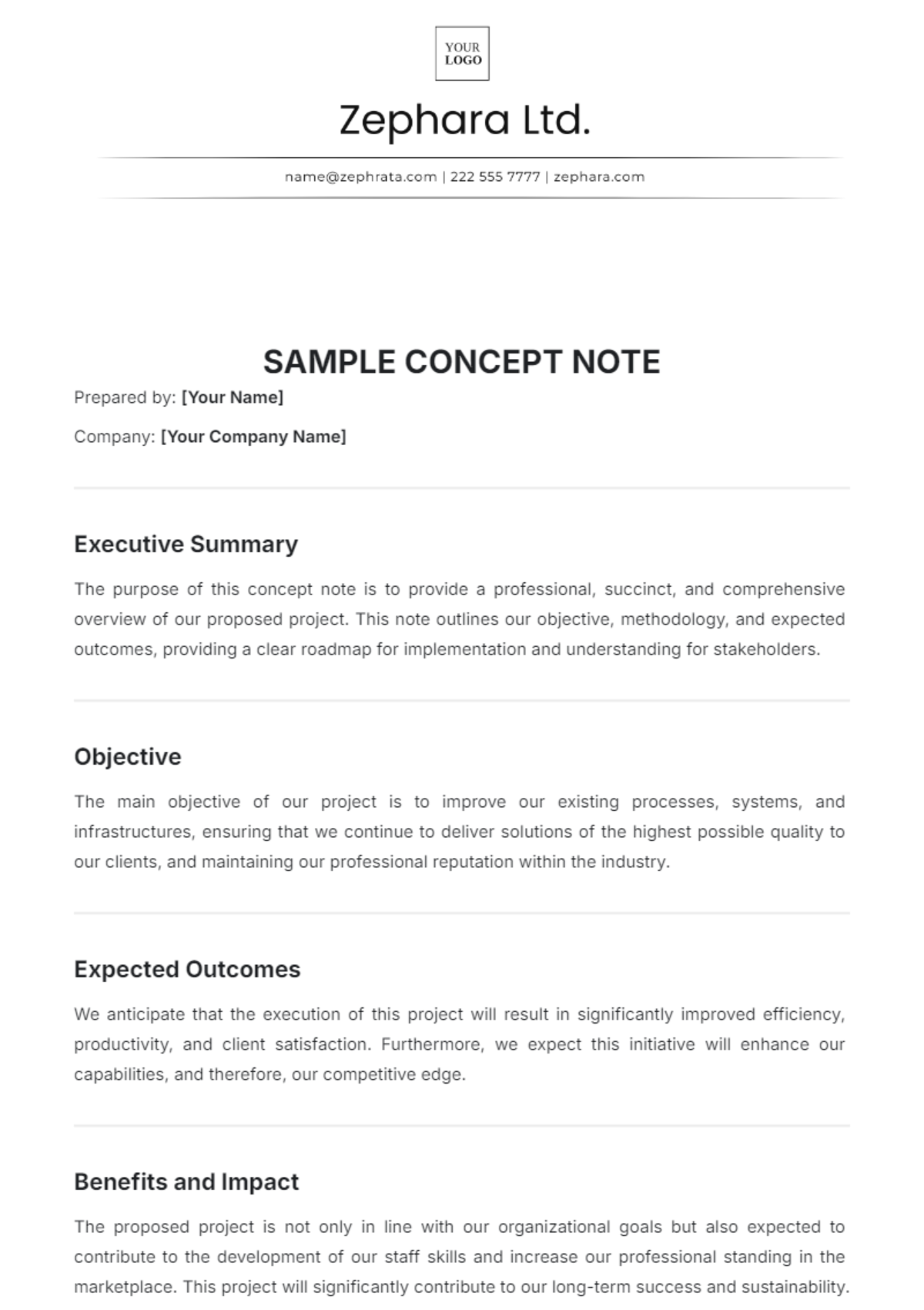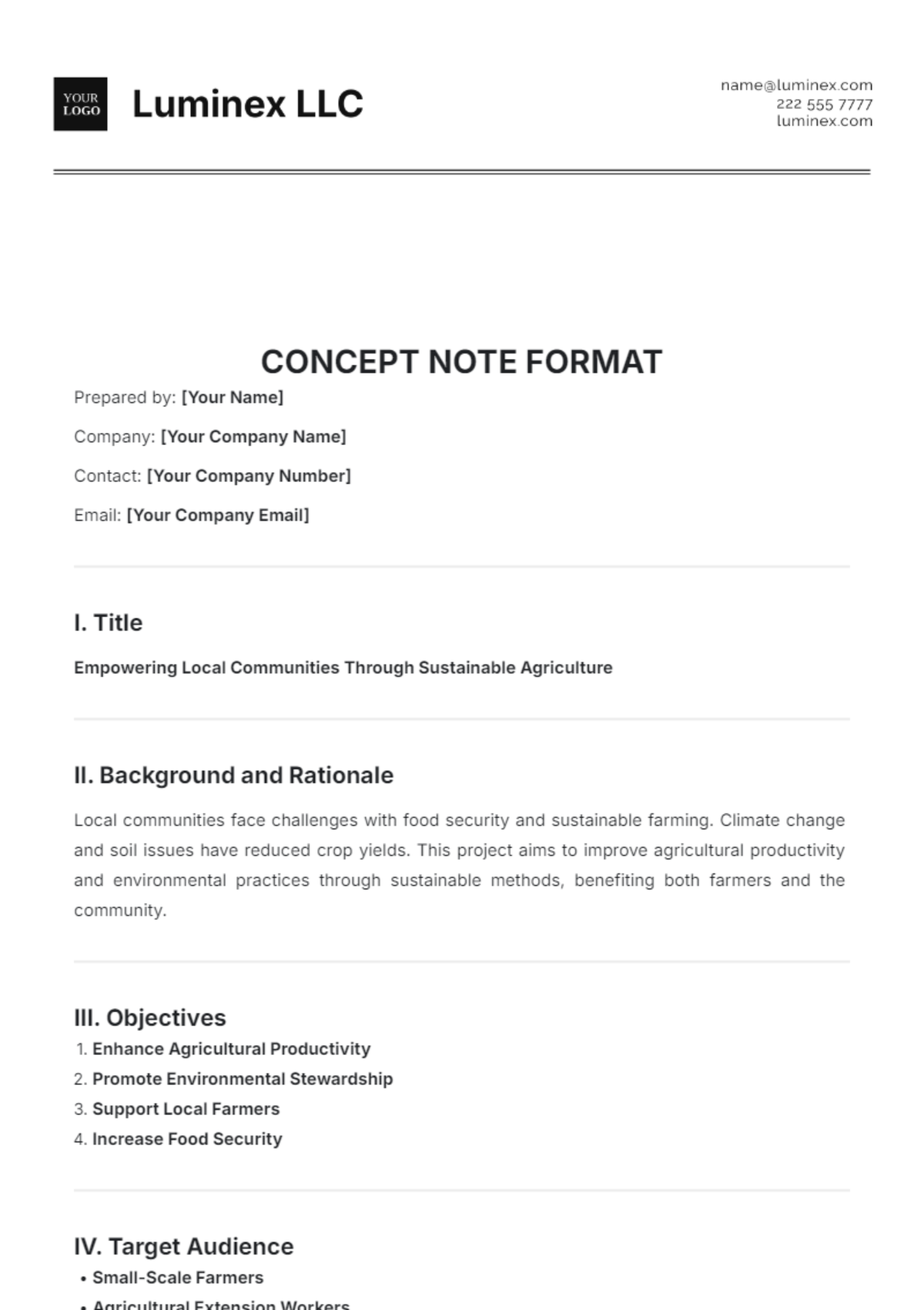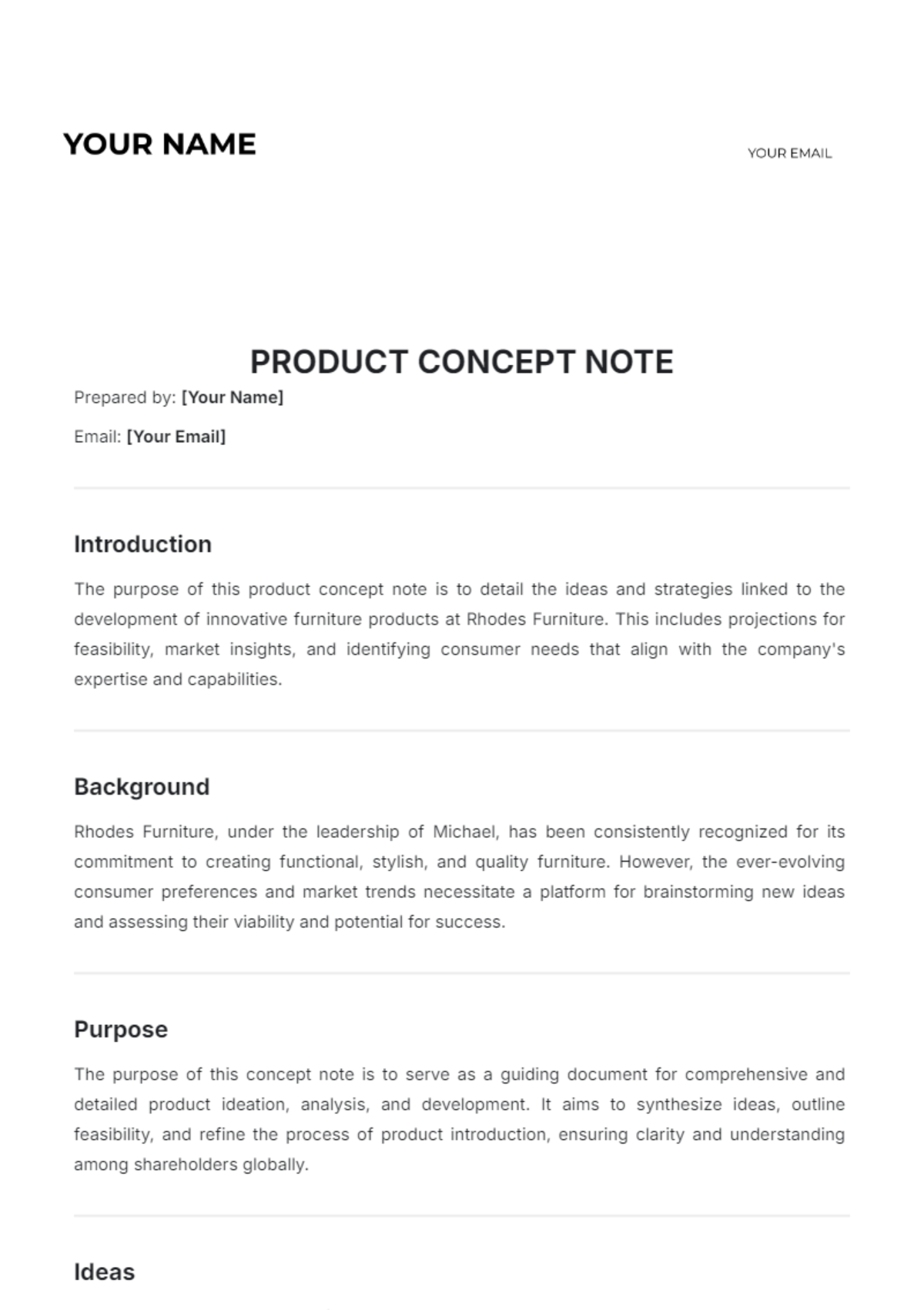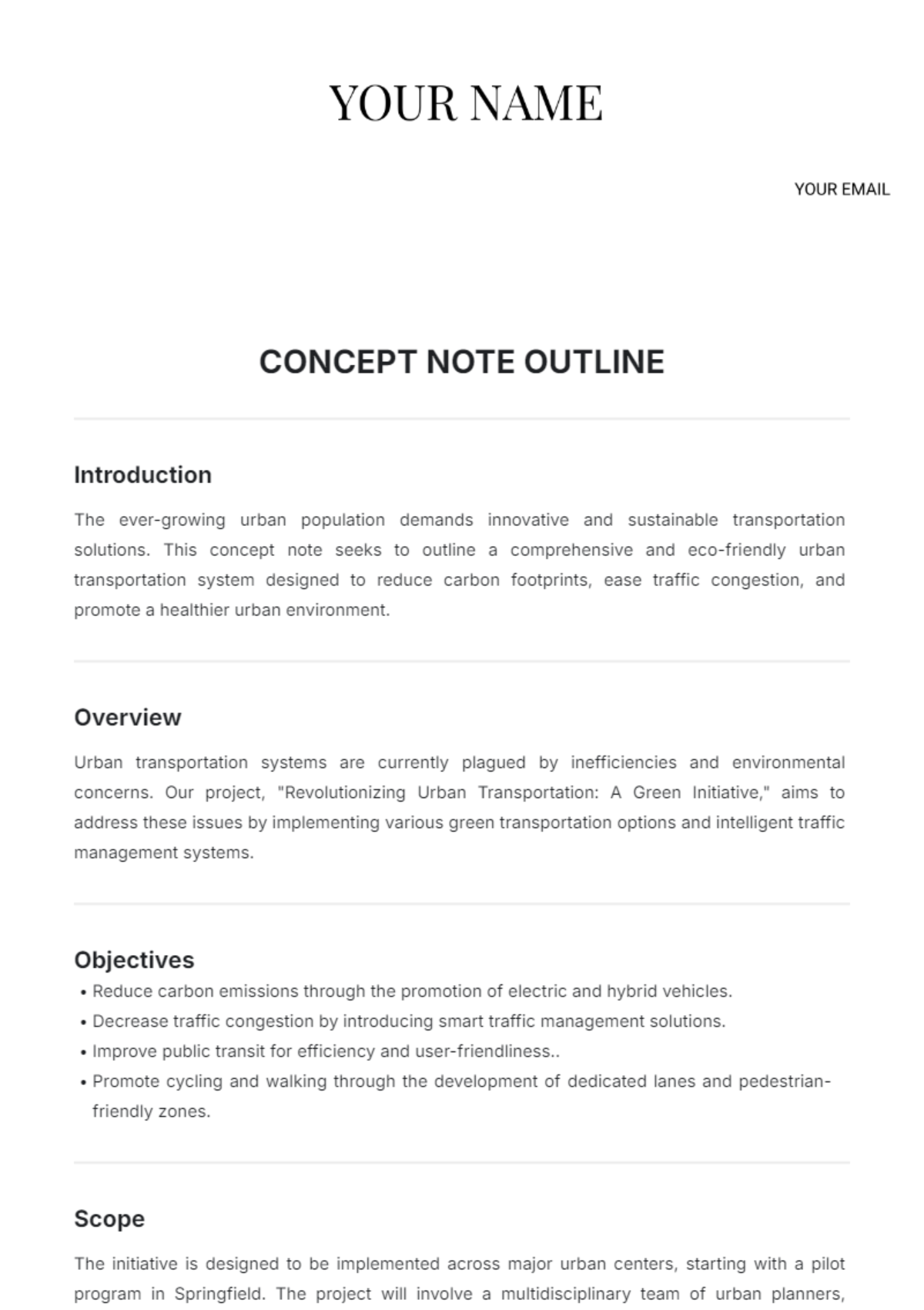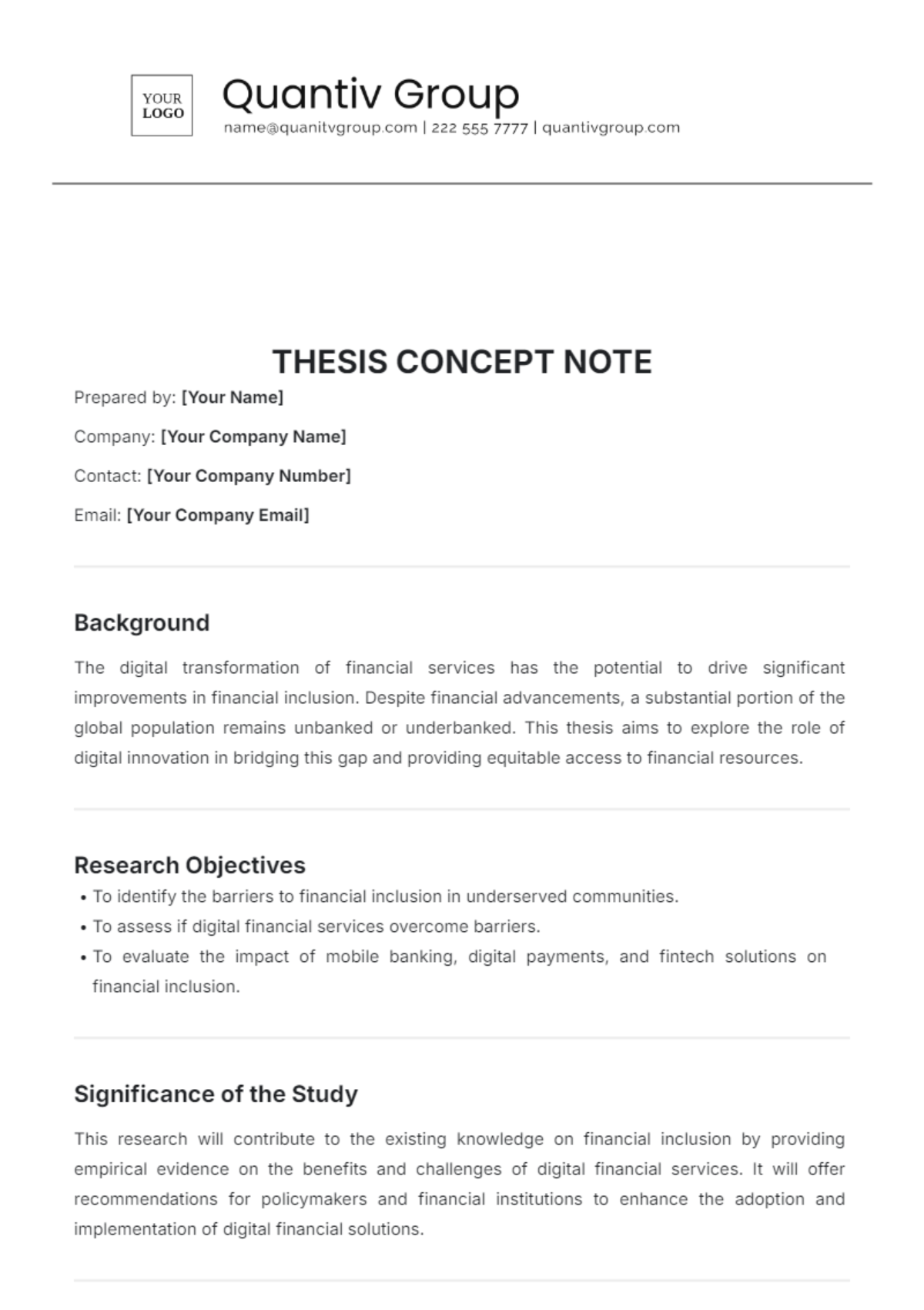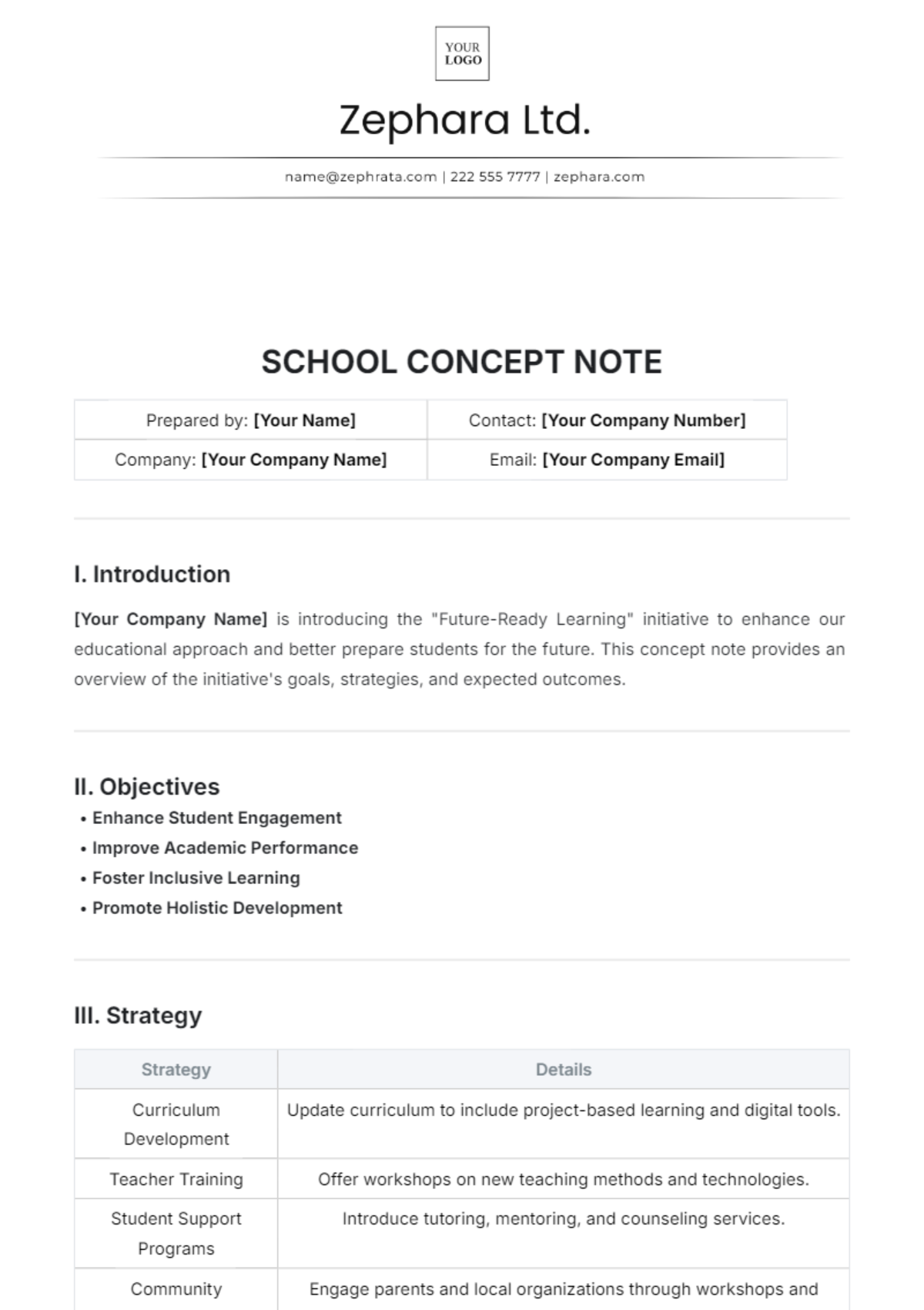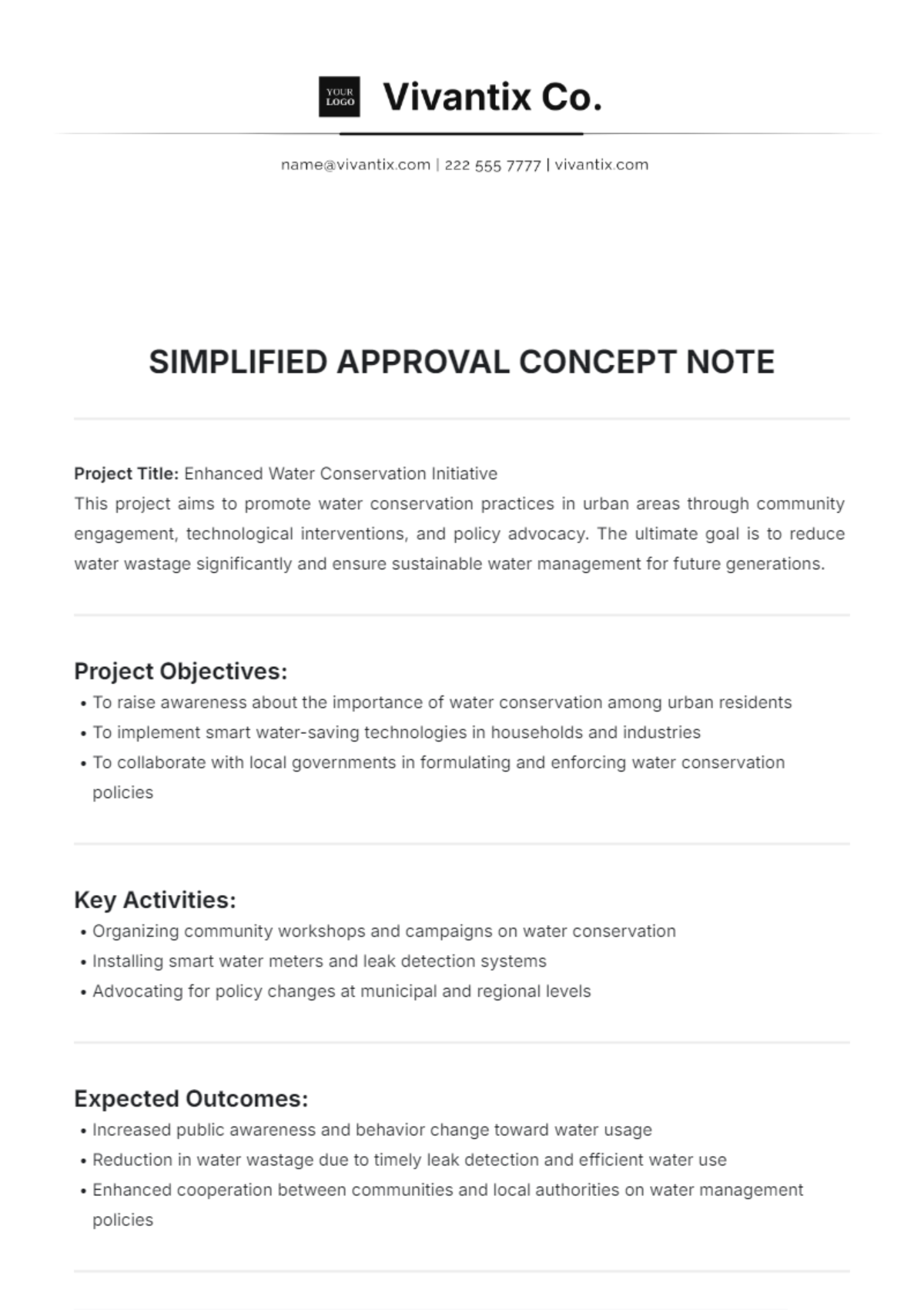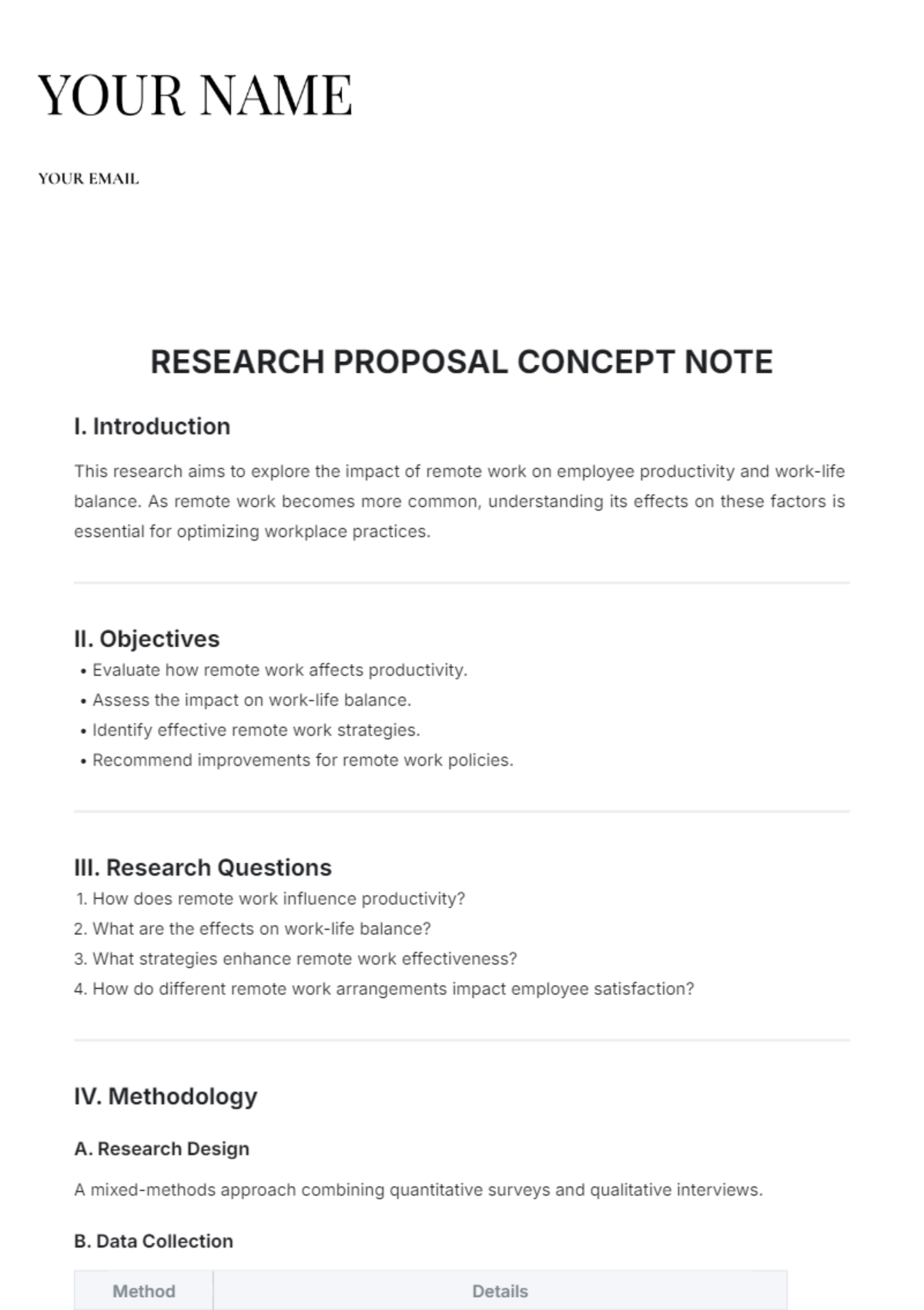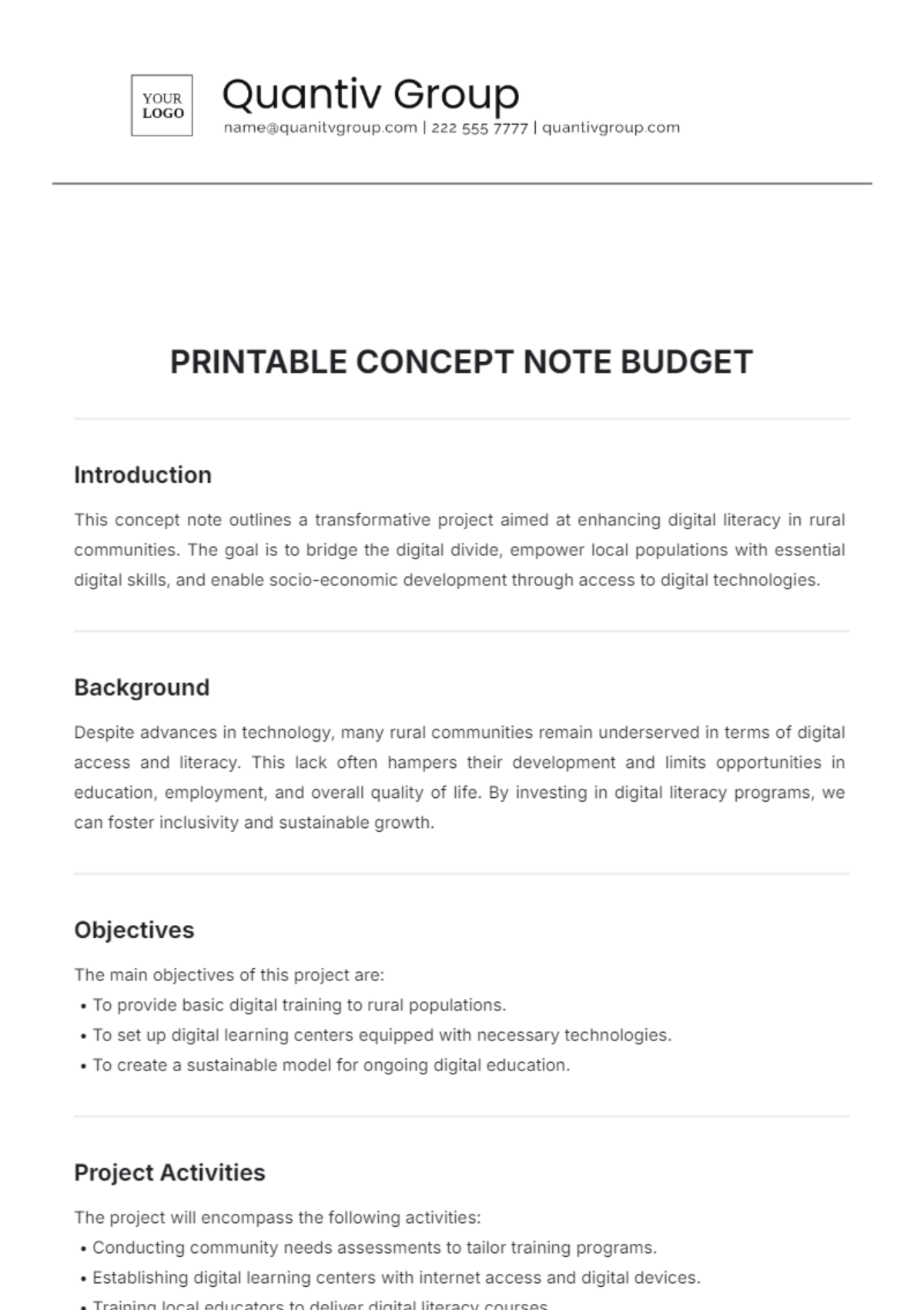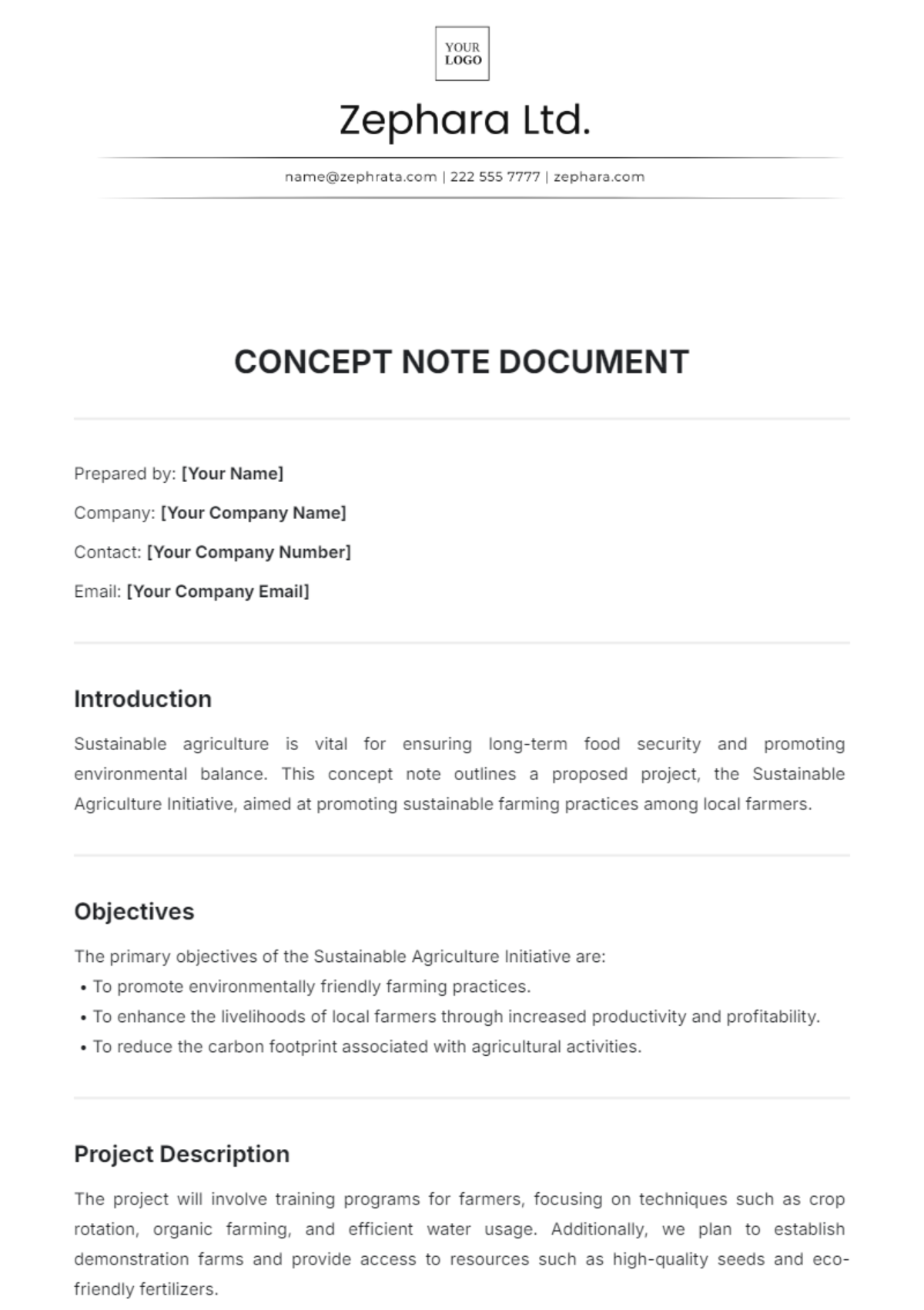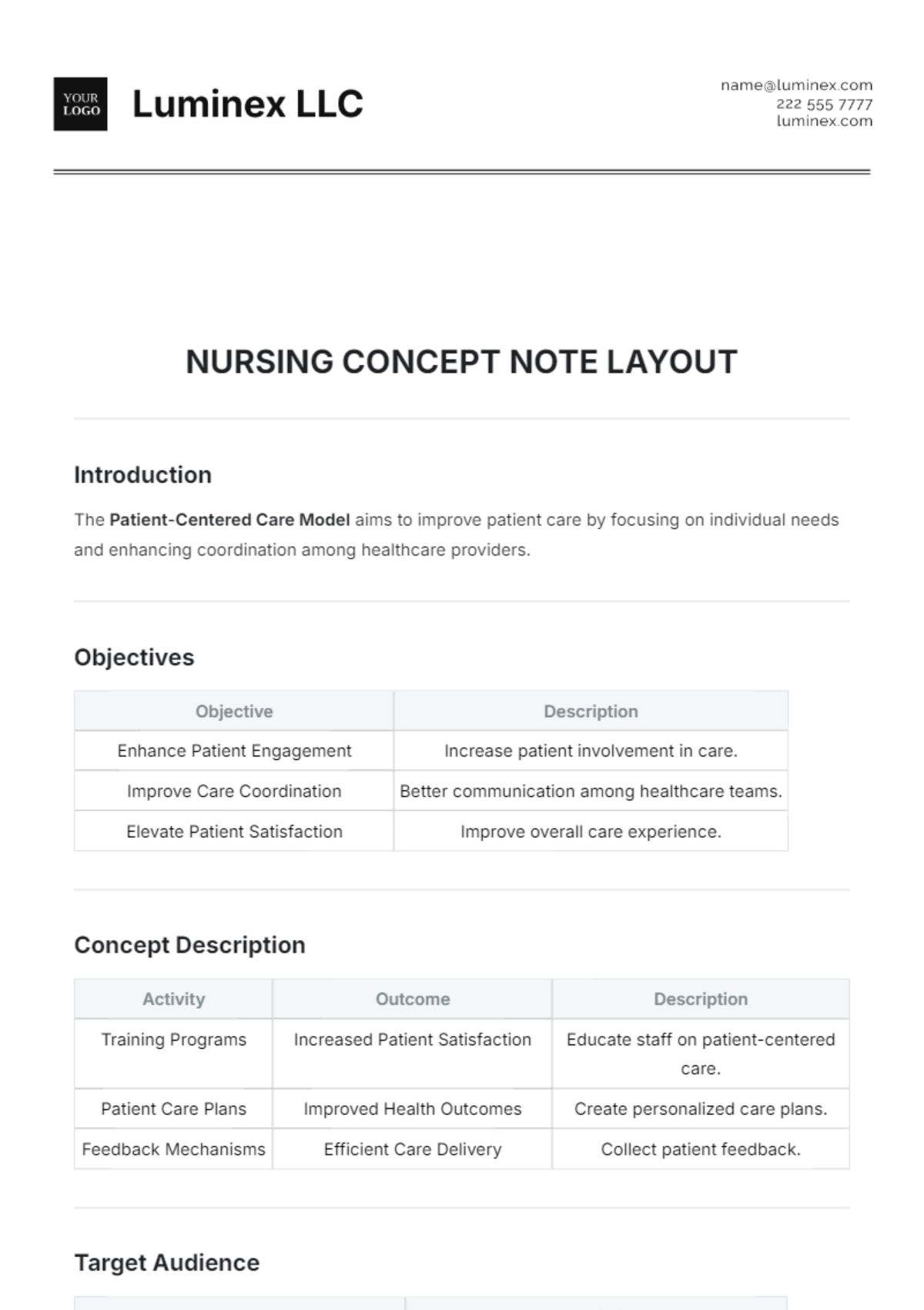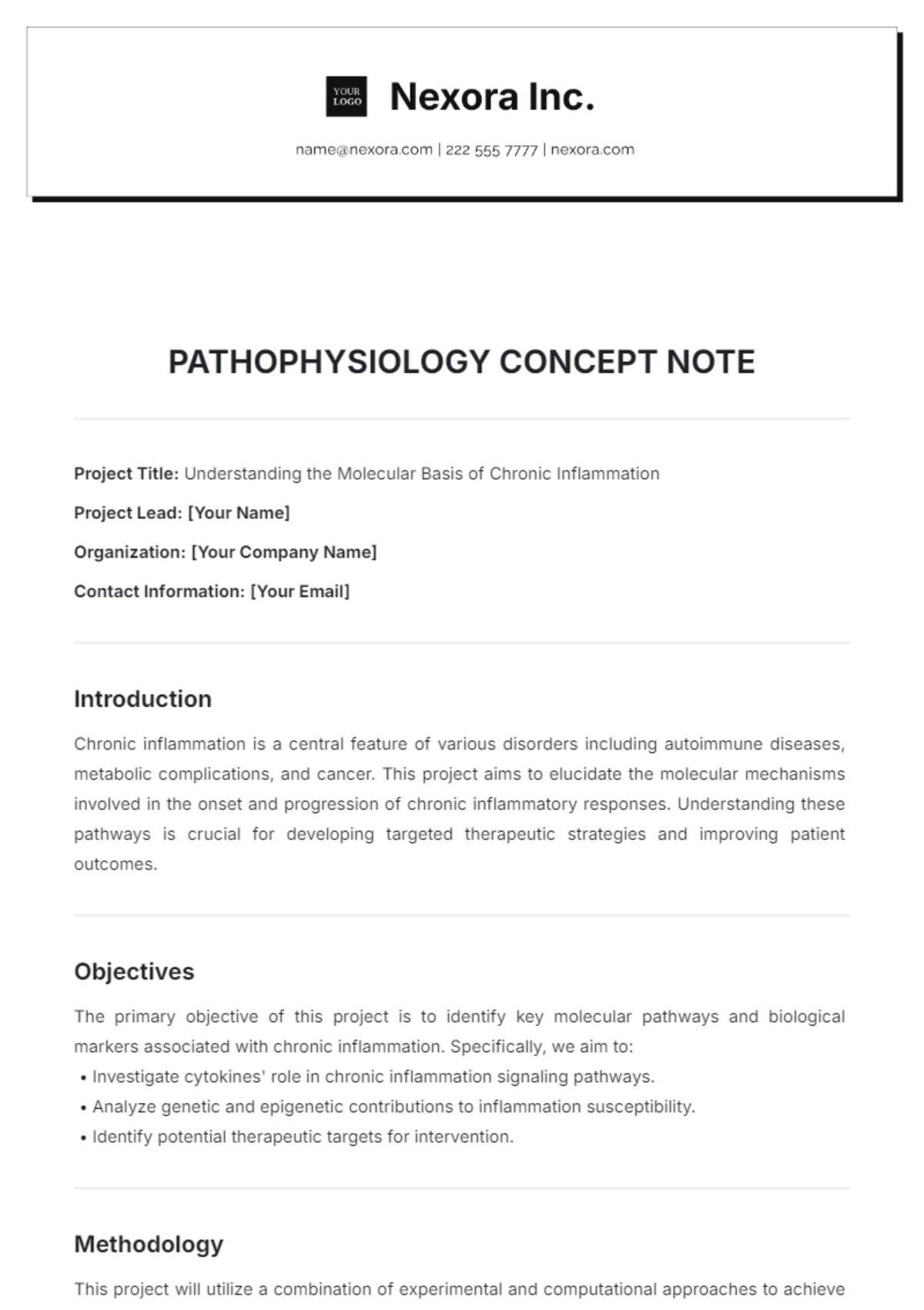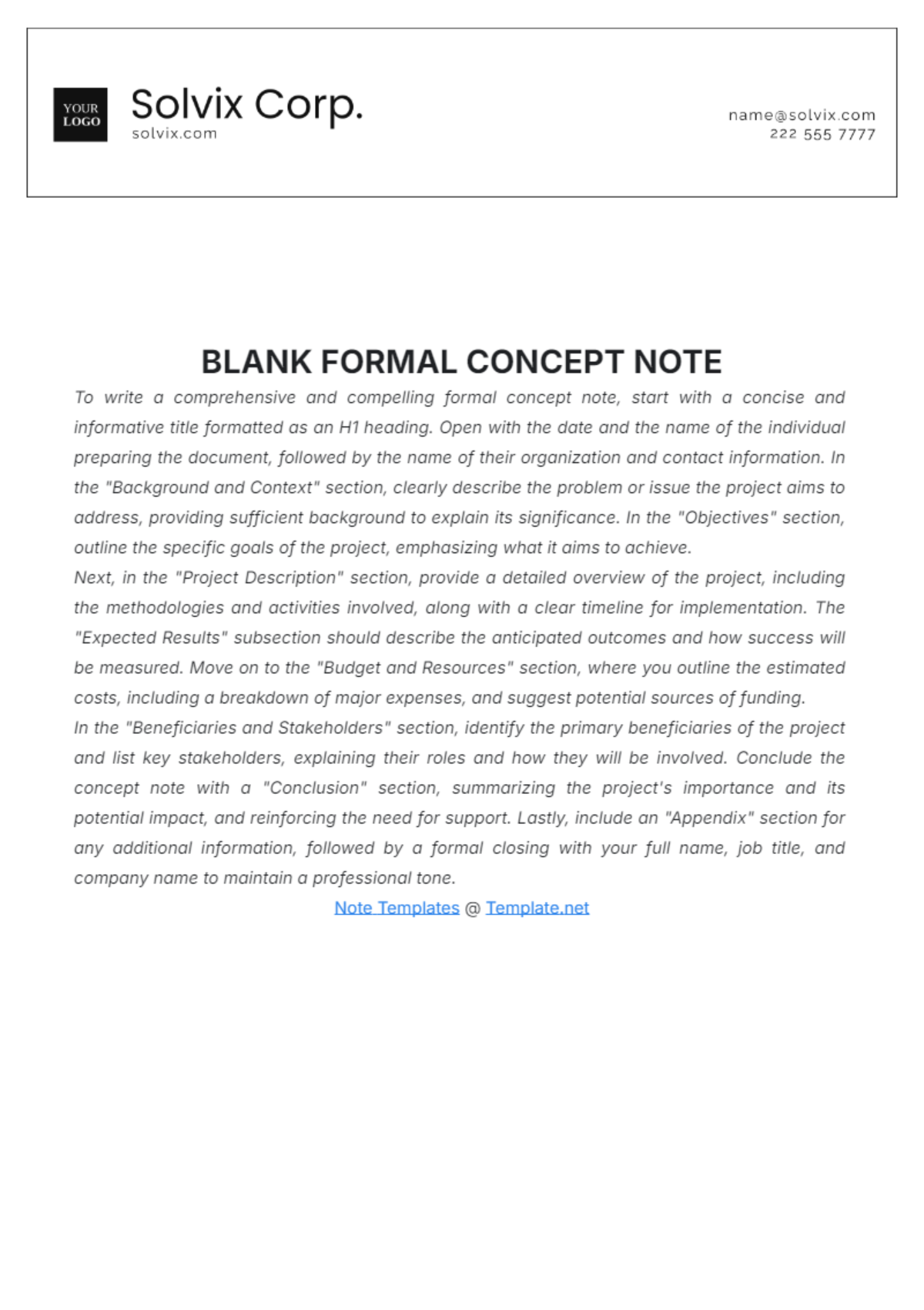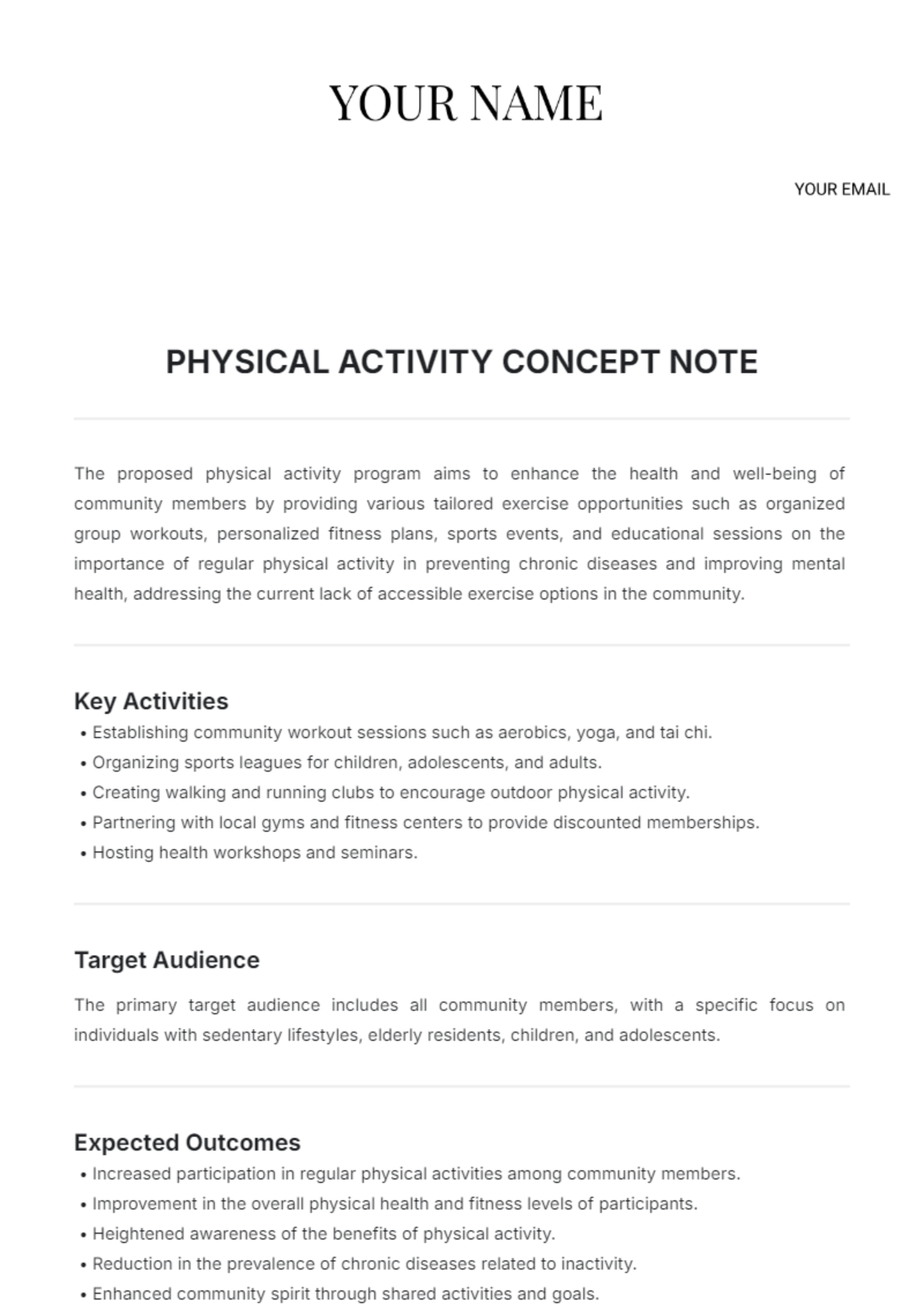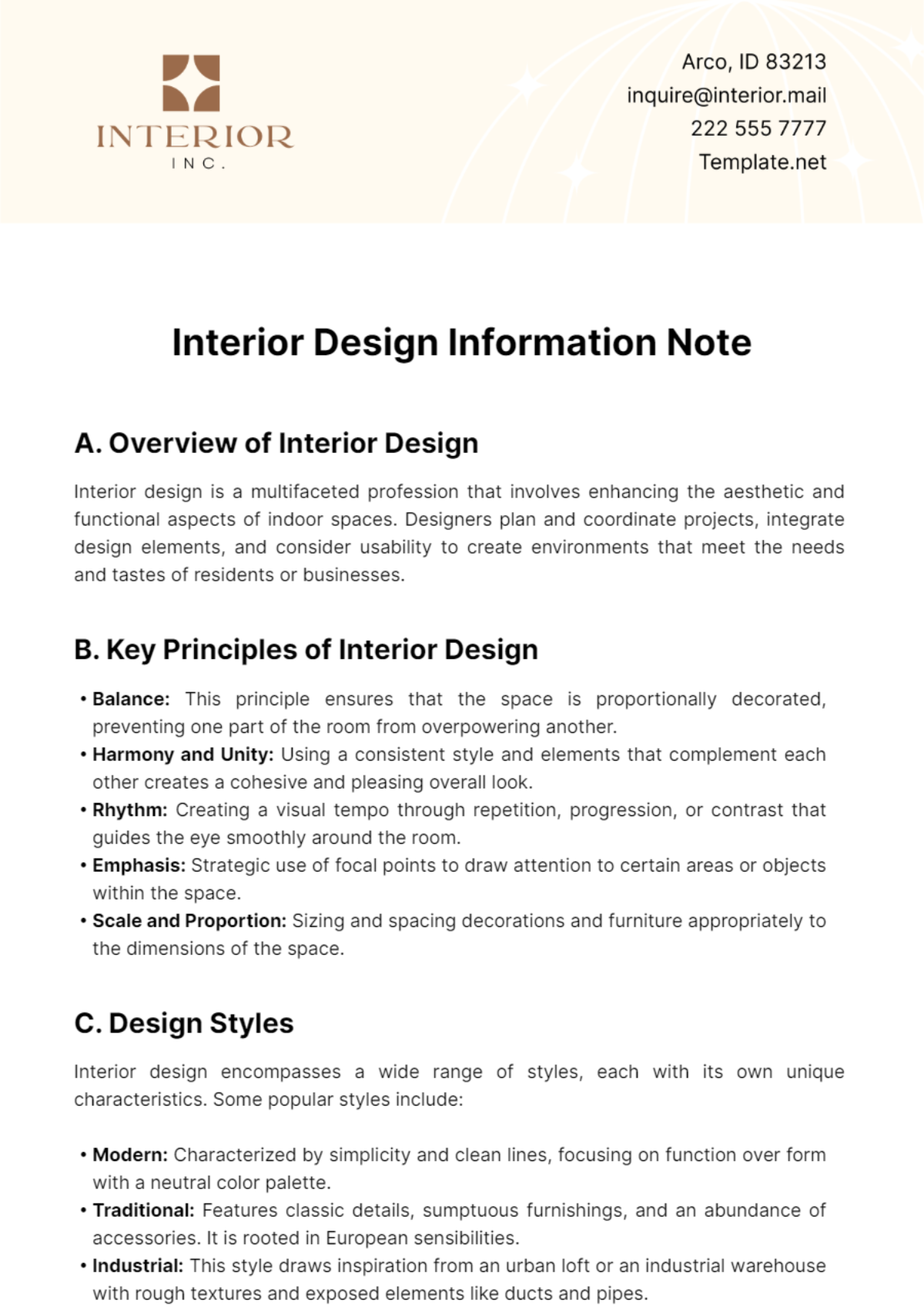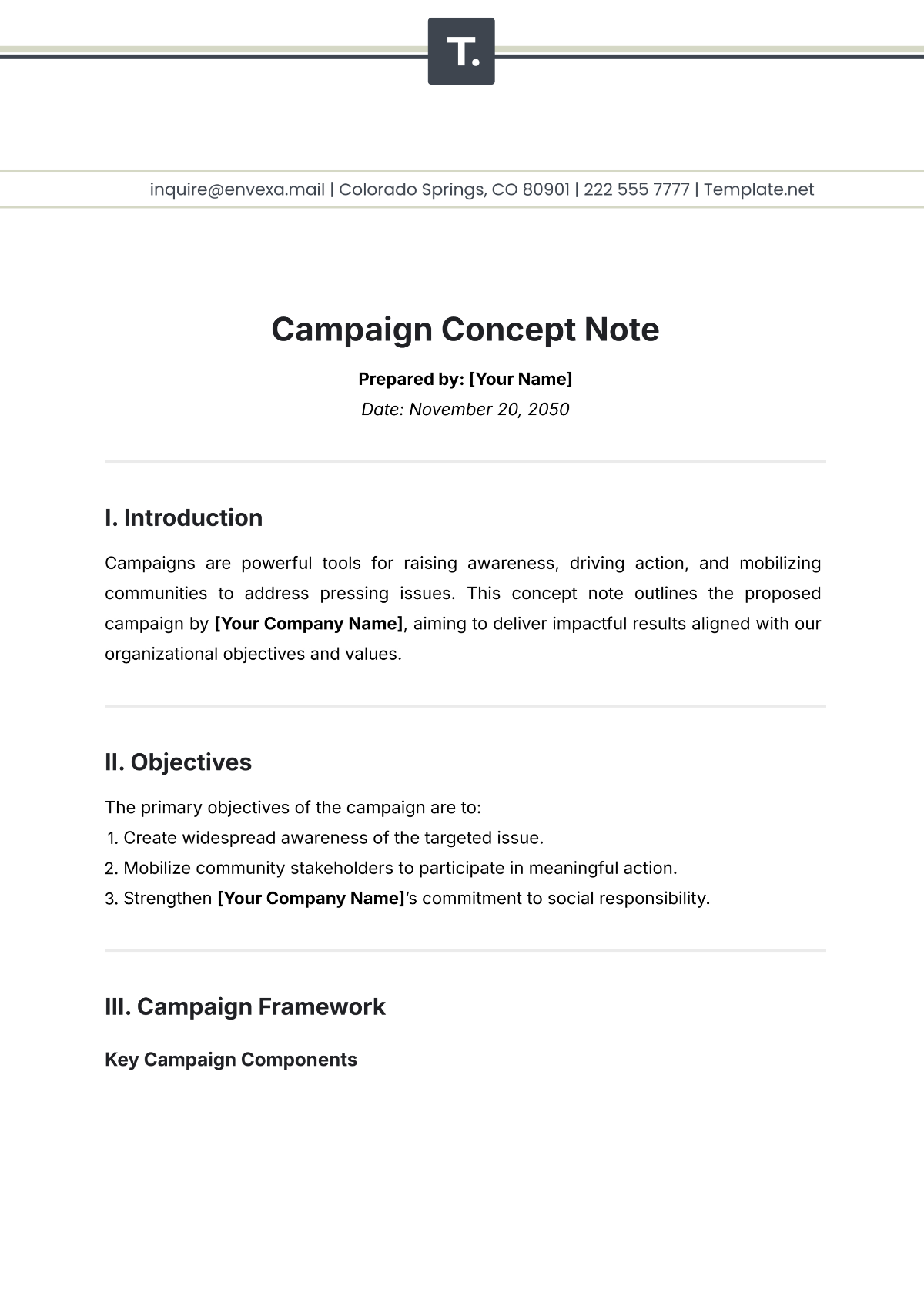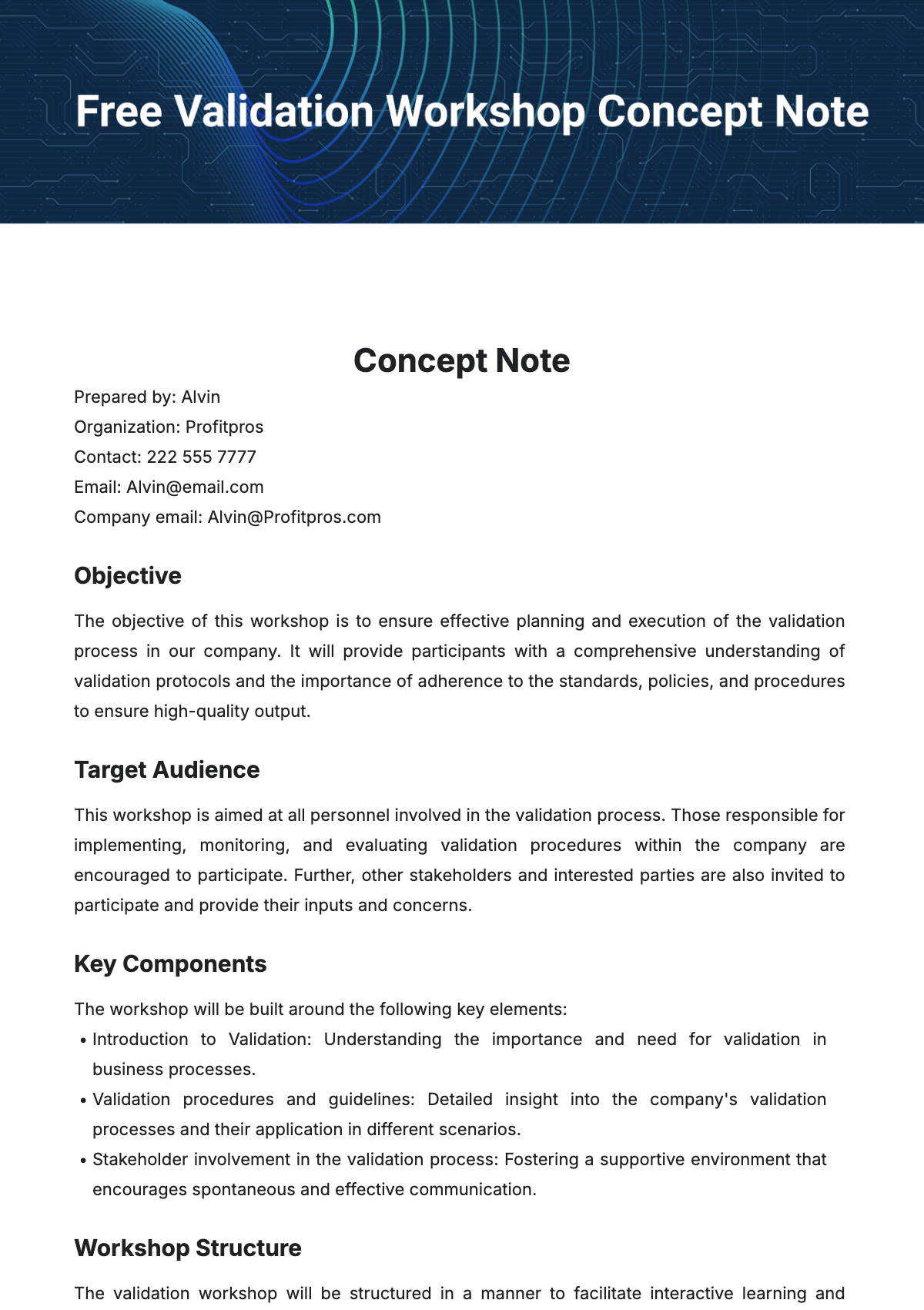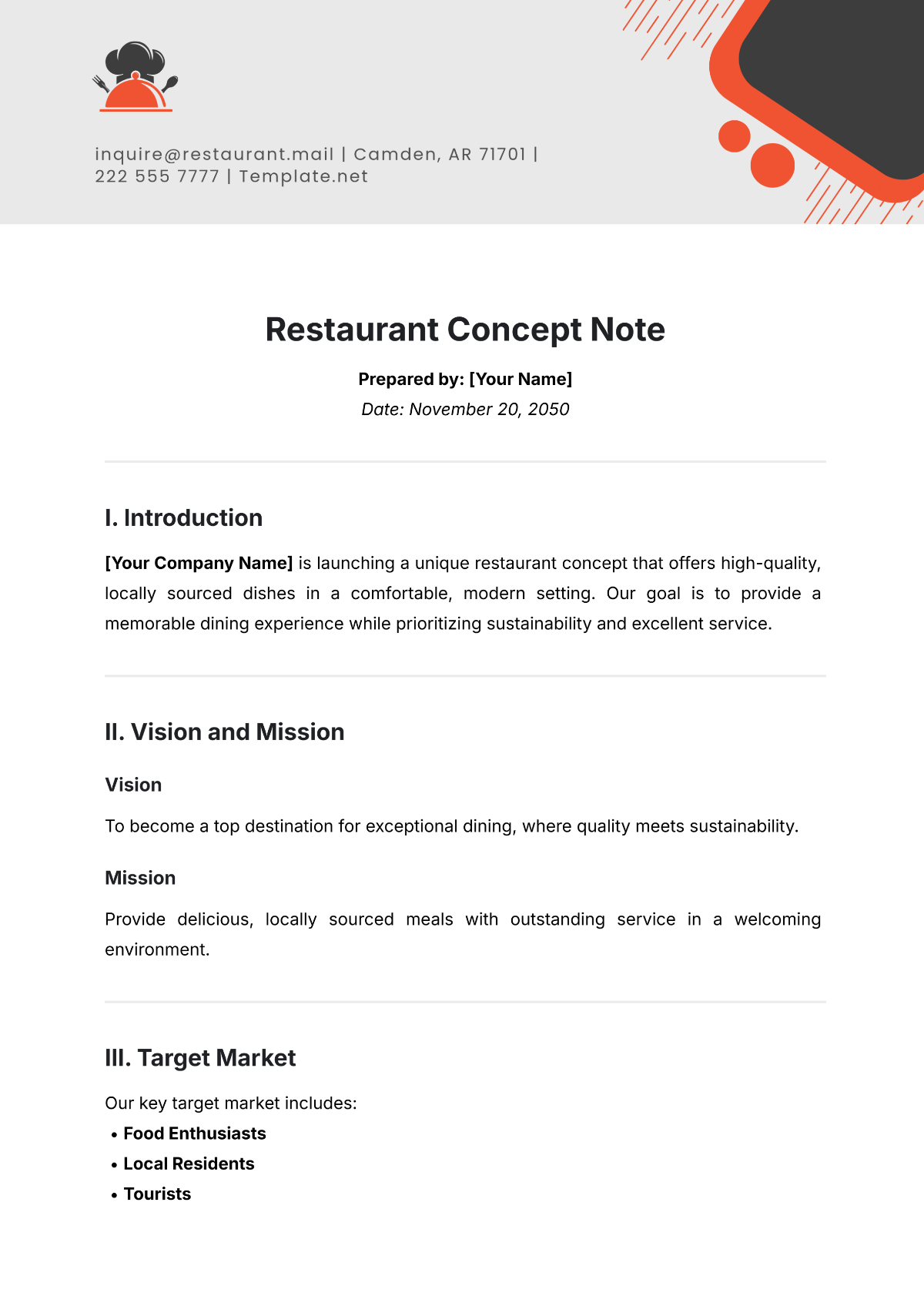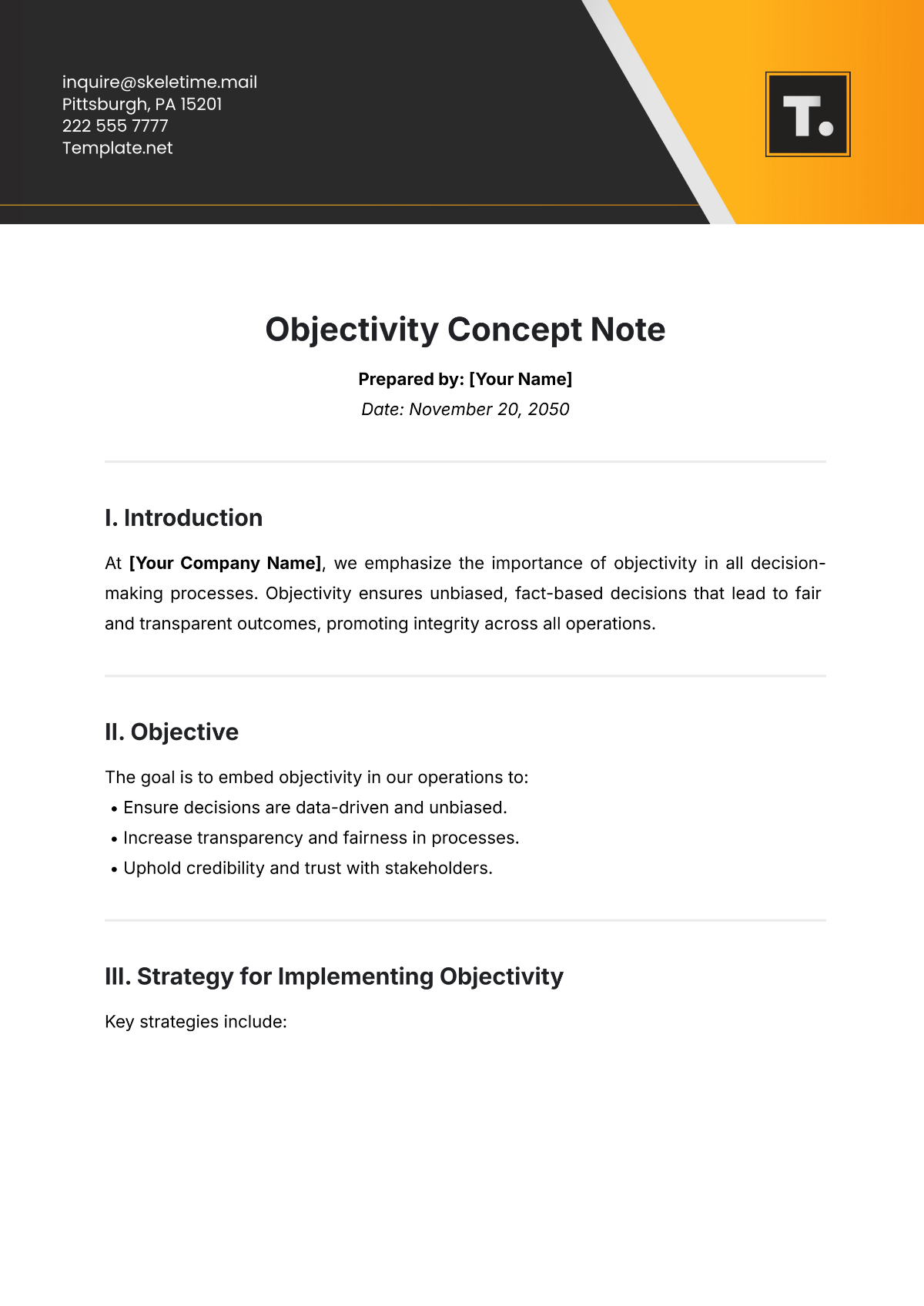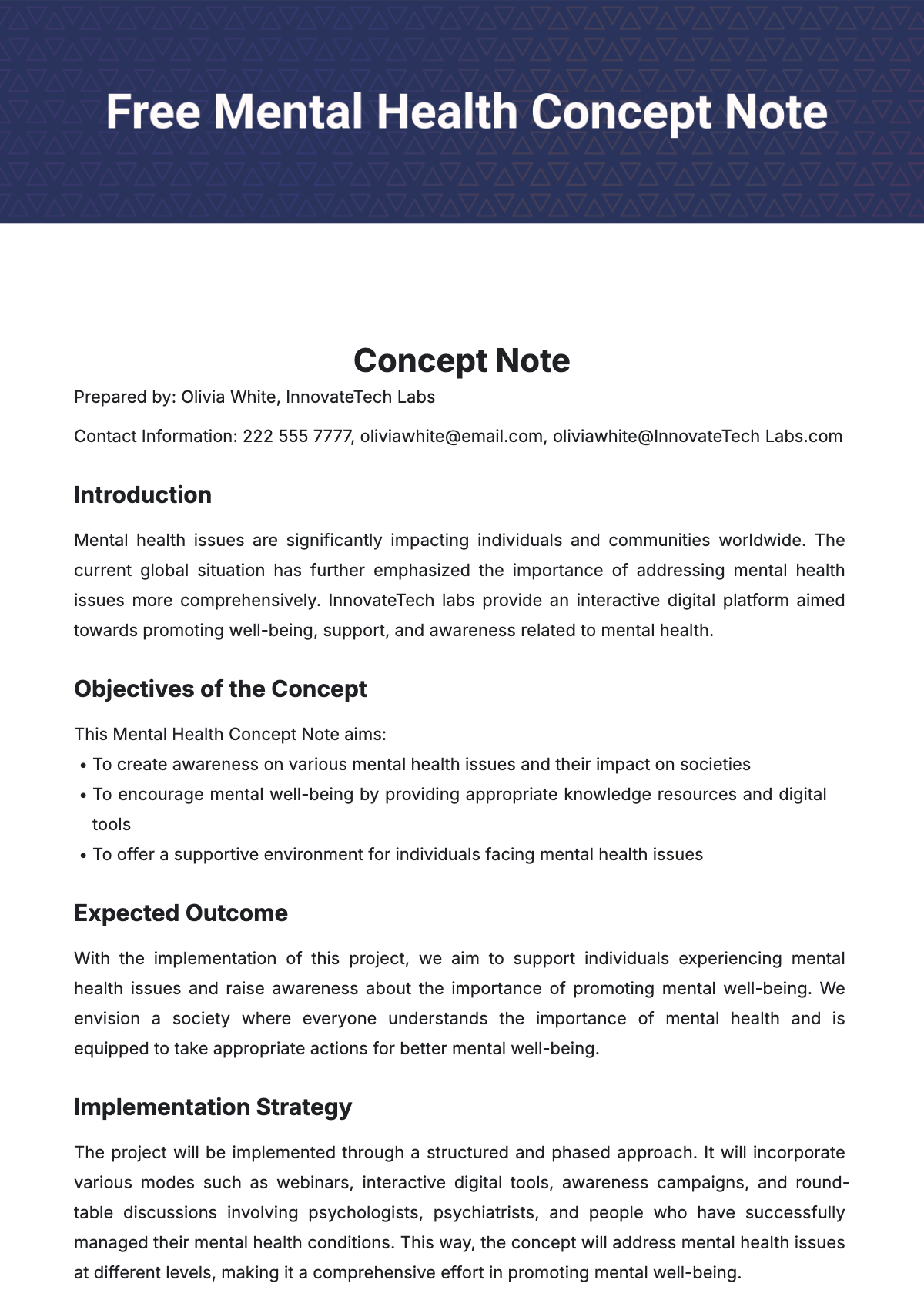HEALTH PROJECT CONCEPT NOTE
I. Project Title
Community Health Improvement Initiative
II. Background and Rationale
In recent years, Pineville has experienced a rise in preventable diseases due to insufficient access to healthcare services and a lack of health education. The community, particularly low-income families and the elderly, faces significant health disparities. This project aims to address these issues by improving access to healthcare services and providing educational resources to promote healthier lifestyles.
III. Objectives
Increase access to primary healthcare services by establishing a mobile clinic that will visit underserved neighborhoods bi-weekly.
Enhance health education by conducting monthly workshops on nutrition, exercise, and preventive care.
Reduce the incidence of chronic diseases such as diabetes and hypertension by 15% within the first year of implementation.
IV. Target Audience
The primary beneficiaries of this project include low-income families, elderly residents, and individuals living in underserved areas of Pineville. This population is characterized by limited access to healthcare services, lower health literacy, and higher rates of chronic health conditions.
V. Project Activities
Establishment of a Mobile Clinic
Set up and equip a mobile clinic to provide free or low-cost medical services including routine check-ups, screenings, and vaccinations.
Health Education Workshops
Organize and conduct workshops at local community centers and schools, focusing on topics such as healthy eating, physical activity, and disease prevention.
Community Outreach Campaign
Launch a campaign using local media and social networks to raise awareness about the mobile clinic services and upcoming health workshops.
VI. Implementation Plan
The project will be rolled out in three phases:
Phase 1: Preparation (Month 1-2)
Secure funding, acquire necessary equipment and recruit healthcare professionals and volunteers.
Phase 2: Execution (Month 3-12)
Deploy the mobile clinic, conduct health education workshops, and initiate the community outreach campaign.
Phase 3: Evaluation and Adjustment (Months 13-14)
Assess the effectiveness of the project through surveys and health outcome data. Make necessary adjustments based on feedback and observed results.
-VII. Budget and Resources
Budget Item | Estimated Cost |
|---|---|
Mobile Clinic Setup | $60,000 |
Medical Supplies and Equipment | $30,000 |
Staff Salaries and Training | $40,000 |
Outreach and Marketing | $10,000 |
Miscellaneous Expenses | $10,000 |
Total | $150,000 |
Funding Sources:
Grants from local health foundations, donations from community organizations, and corporate sponsorships.
VIII. Monitoring and Evaluation
The project’s success will be monitored through the following indicators:
Number of patients served by the mobile clinic.
Attendance and participant feedback from health education workshops.
Changes in the prevalence of chronic diseases in the target population.
Evaluation will be conducted through quarterly reports and a final review at the end of the project year. Data will be collected via surveys, health records, and feedback forms.
IX. Sustainability
To ensure long-term impact, the project will establish partnerships with local health organizations and community groups. Plans for scaling up include exploring additional funding opportunities and integrating the mobile clinic services into existing healthcare programs.
X. Contact Information
Prepared by: [Your Name], Project Manager
Company: [Your Company Name]
Contact: [Your Company Number]
Email: [Your Company Email]
